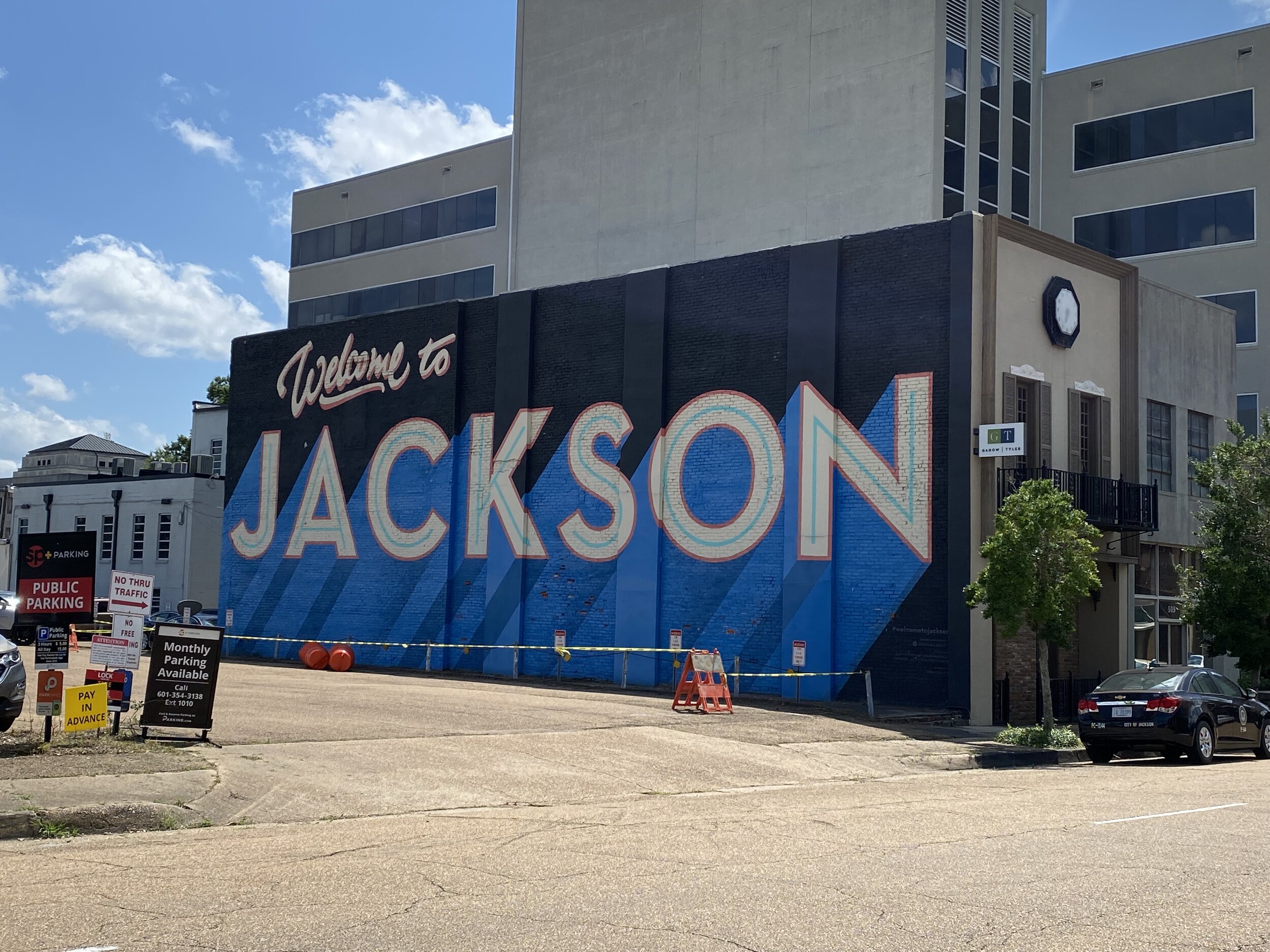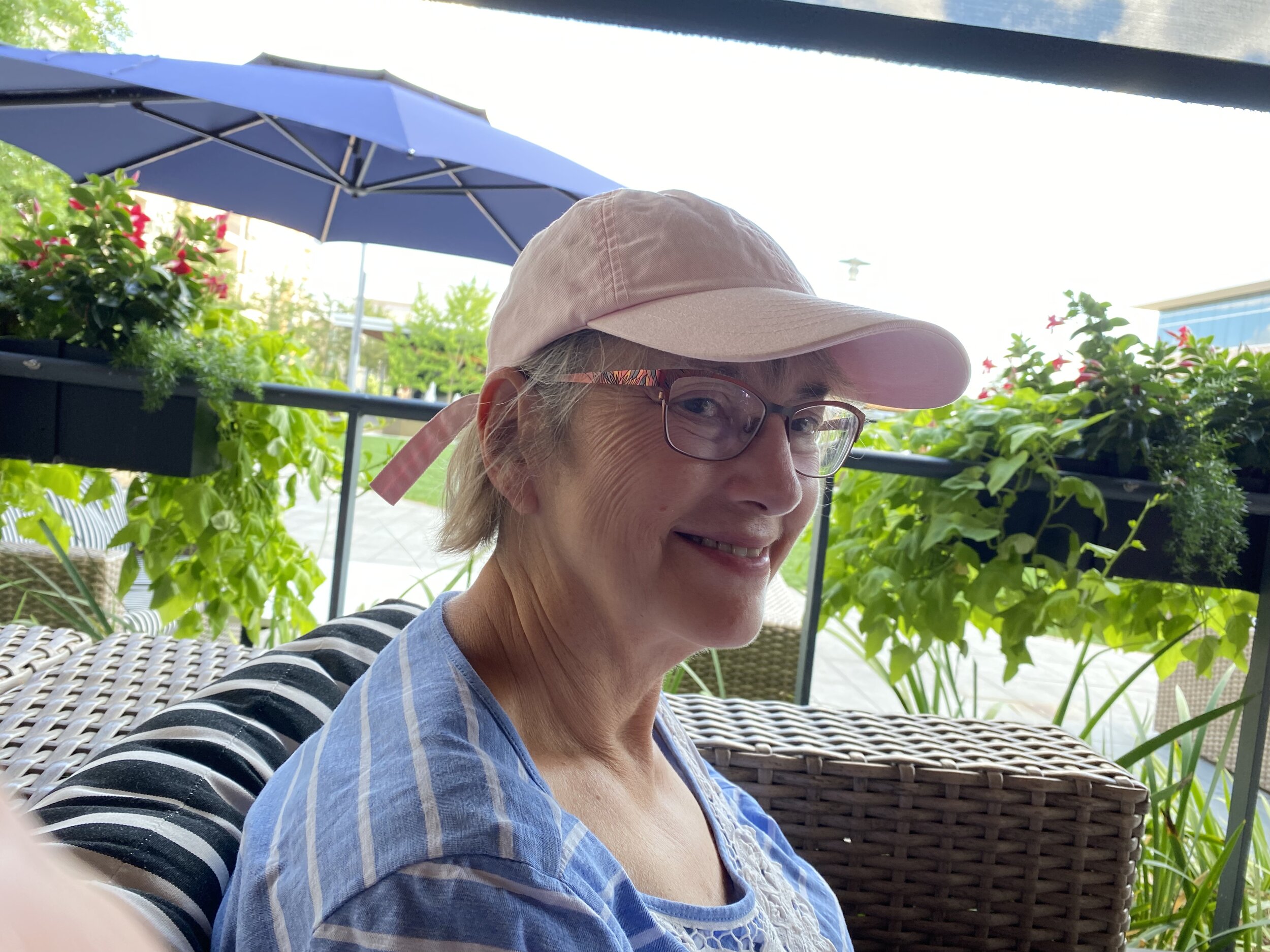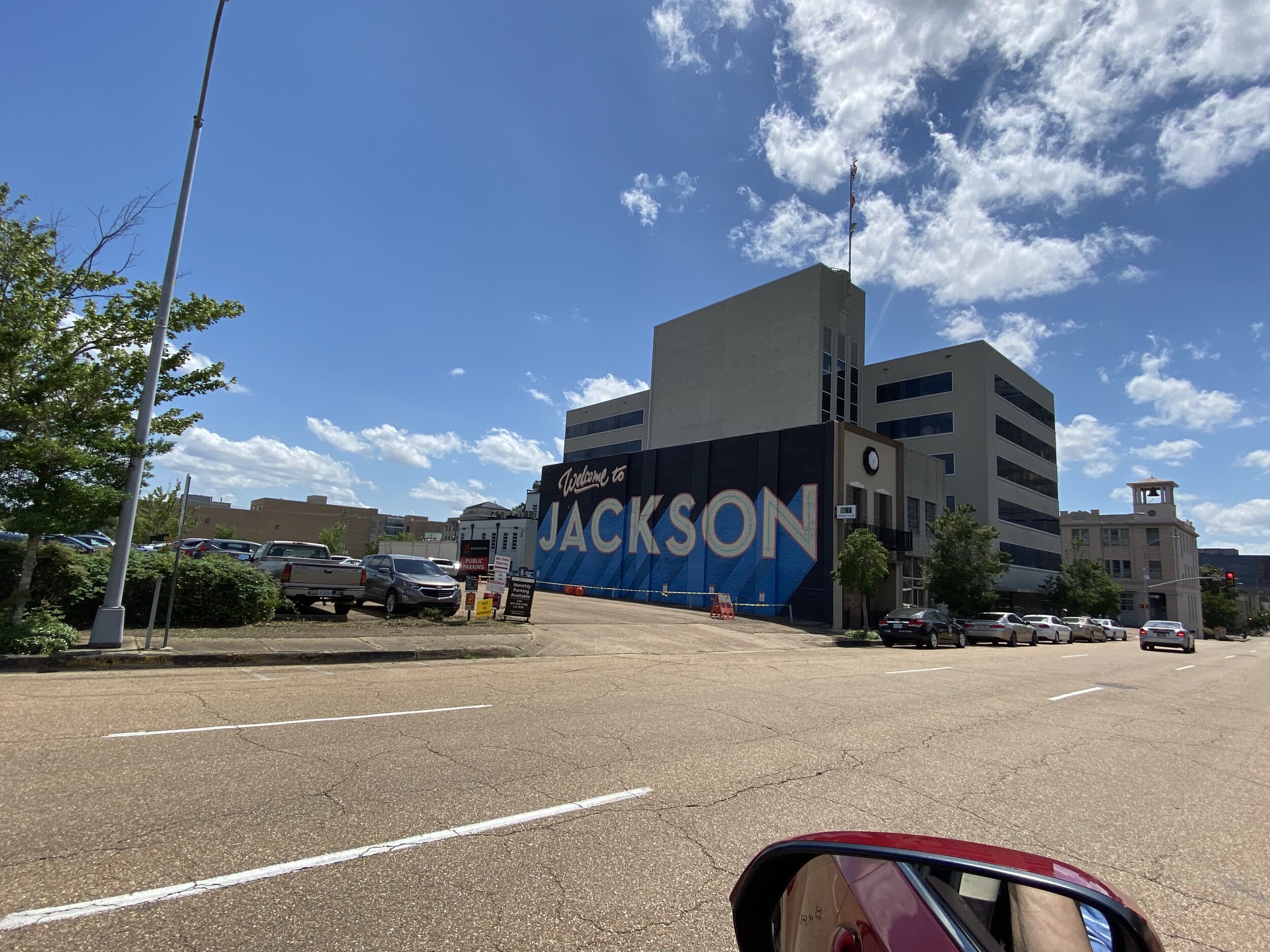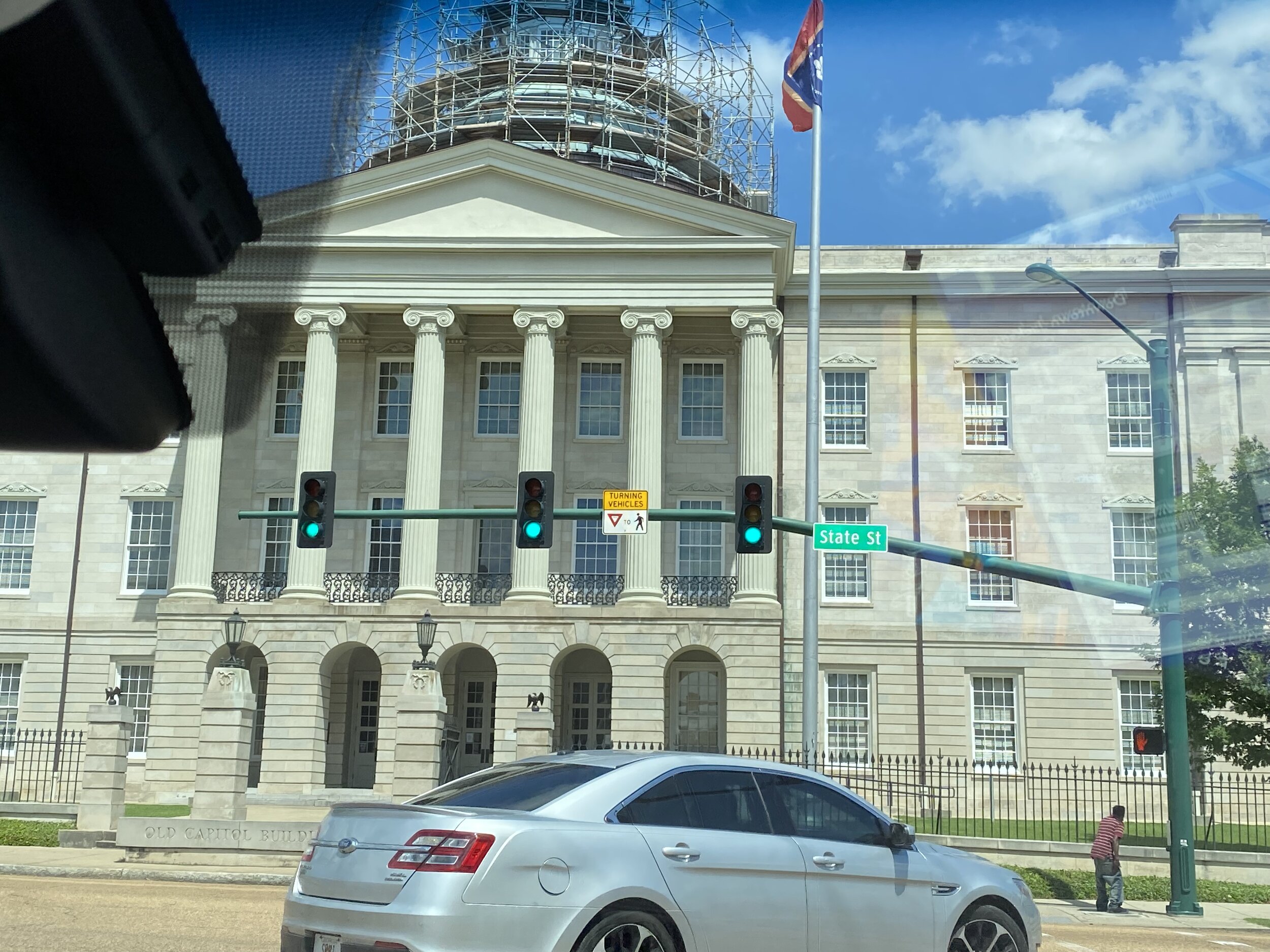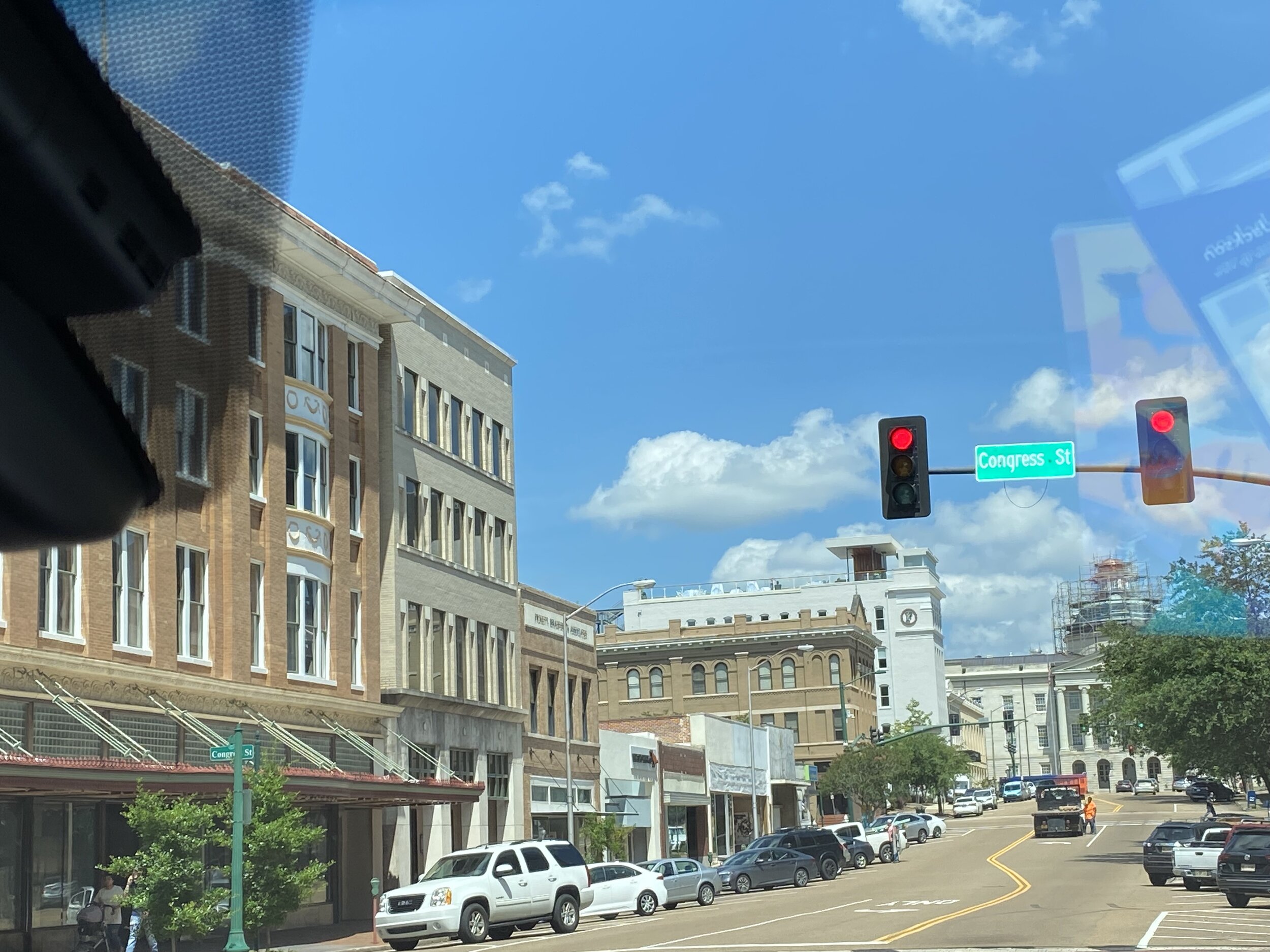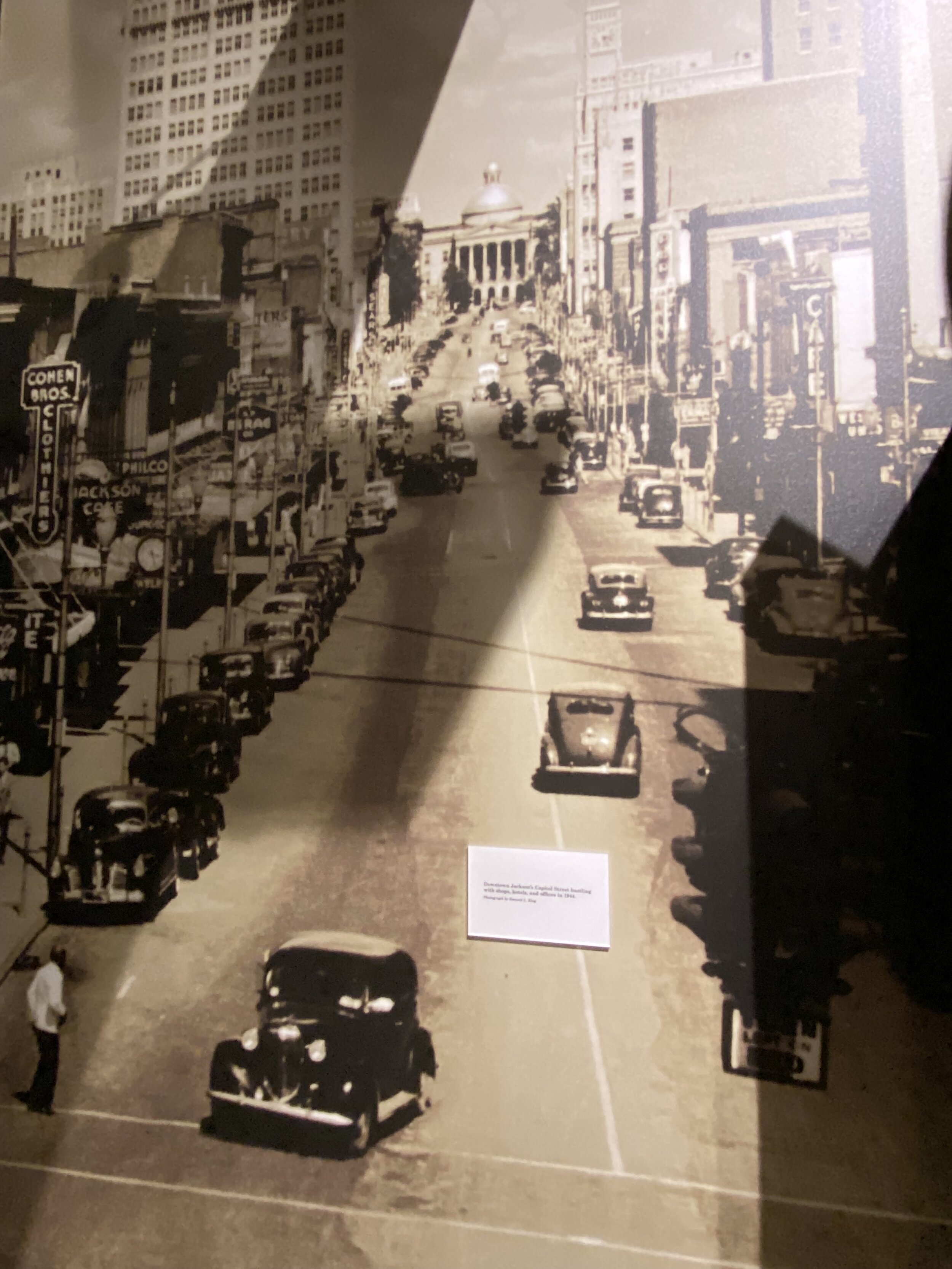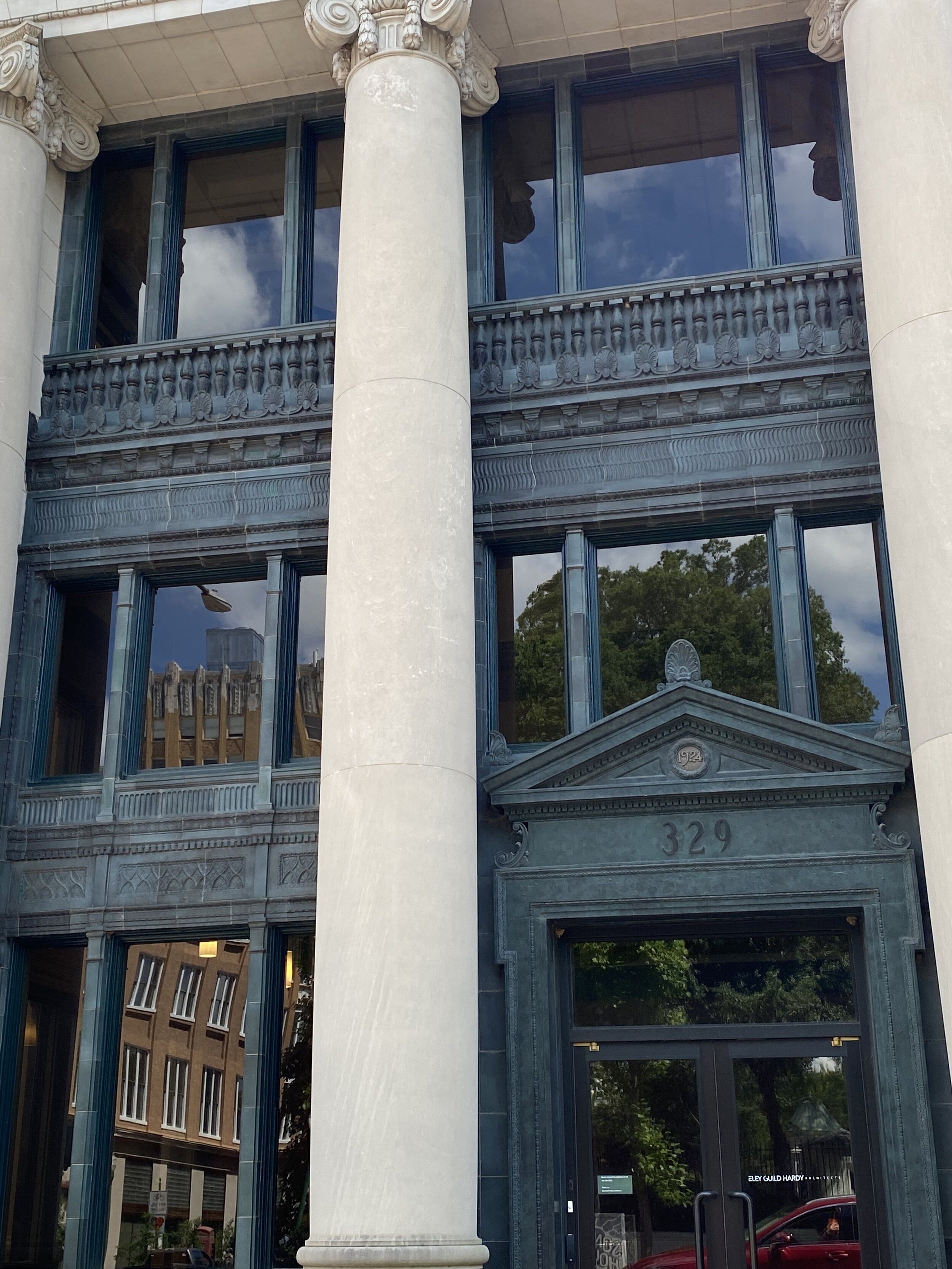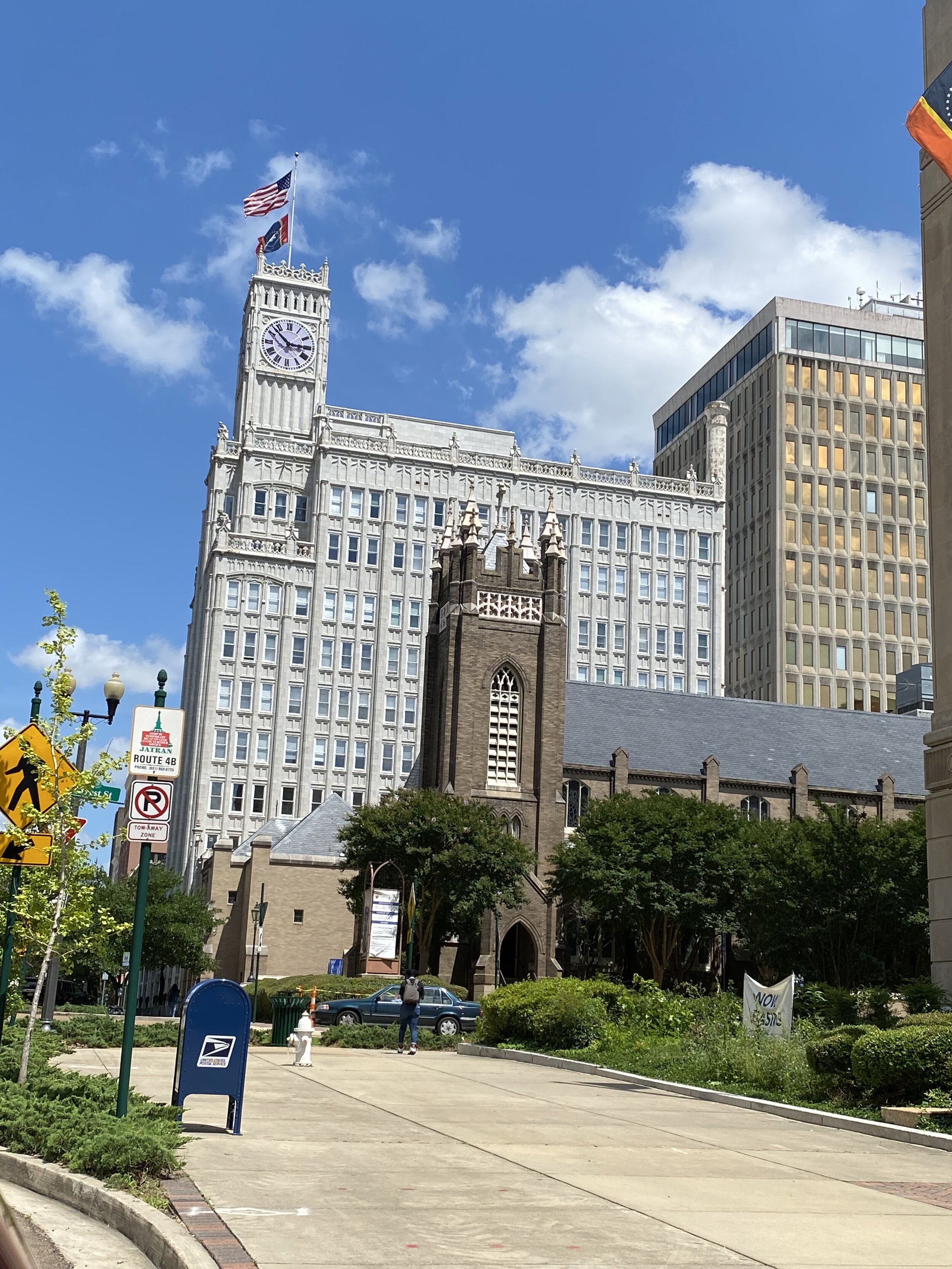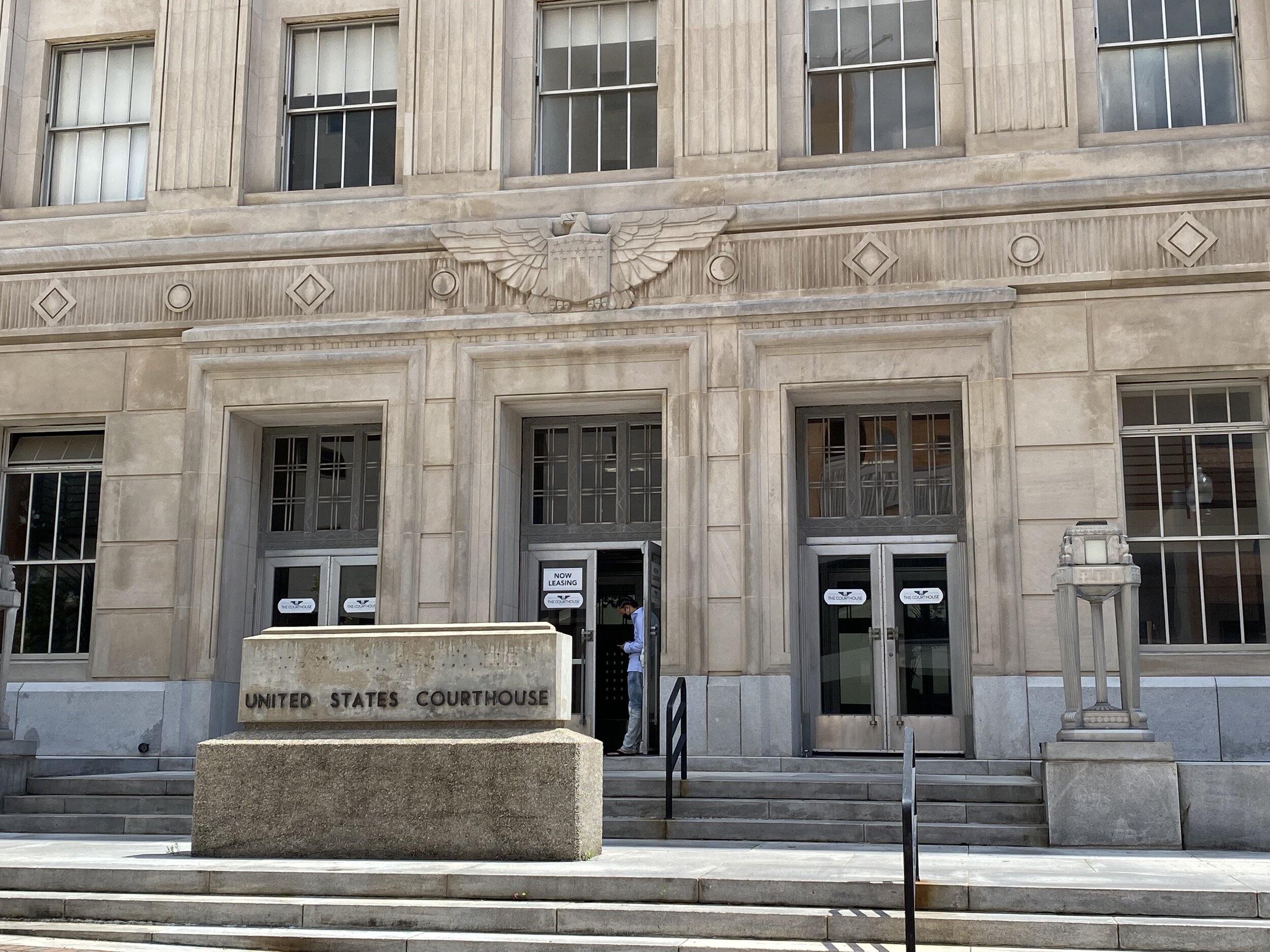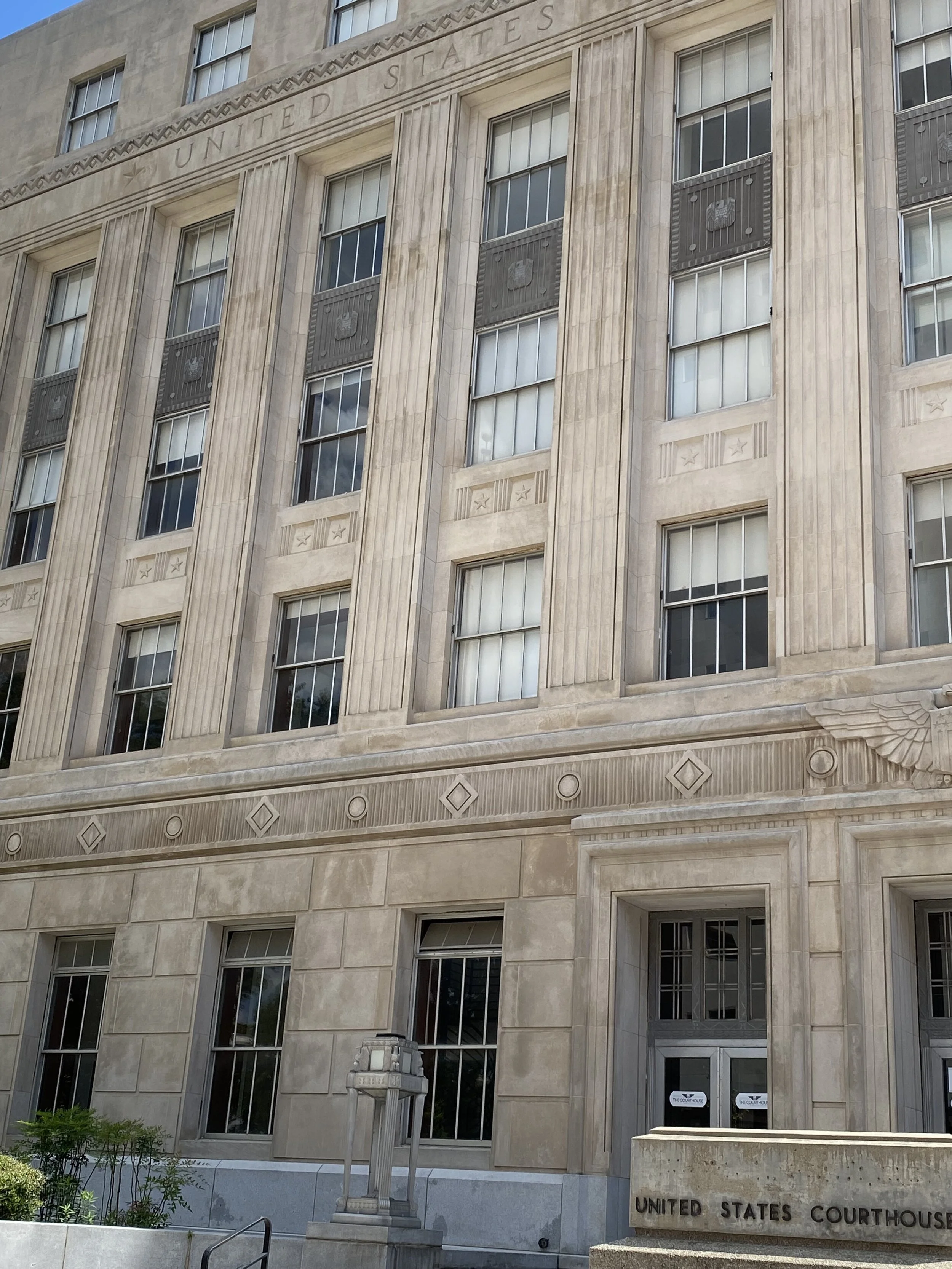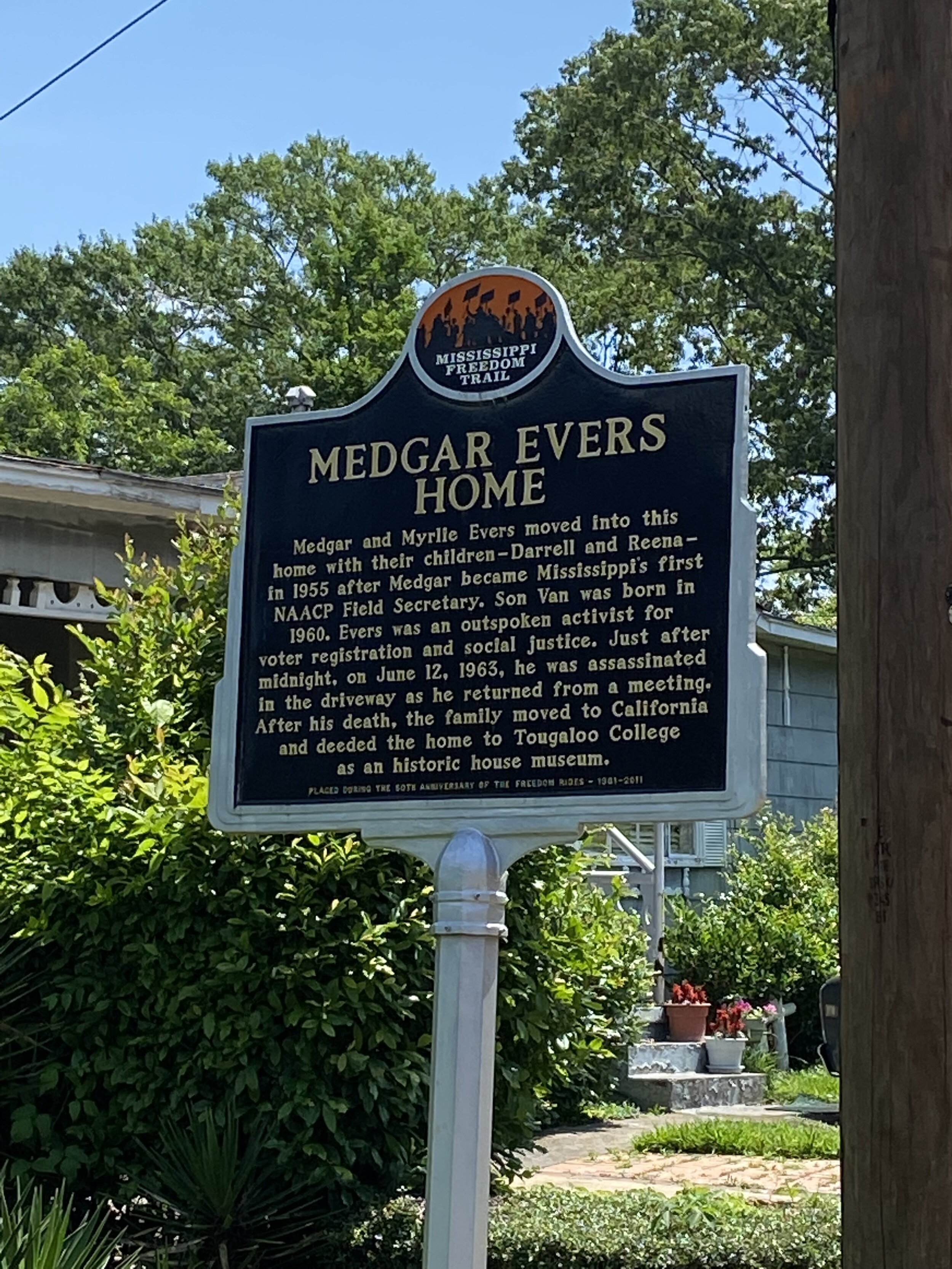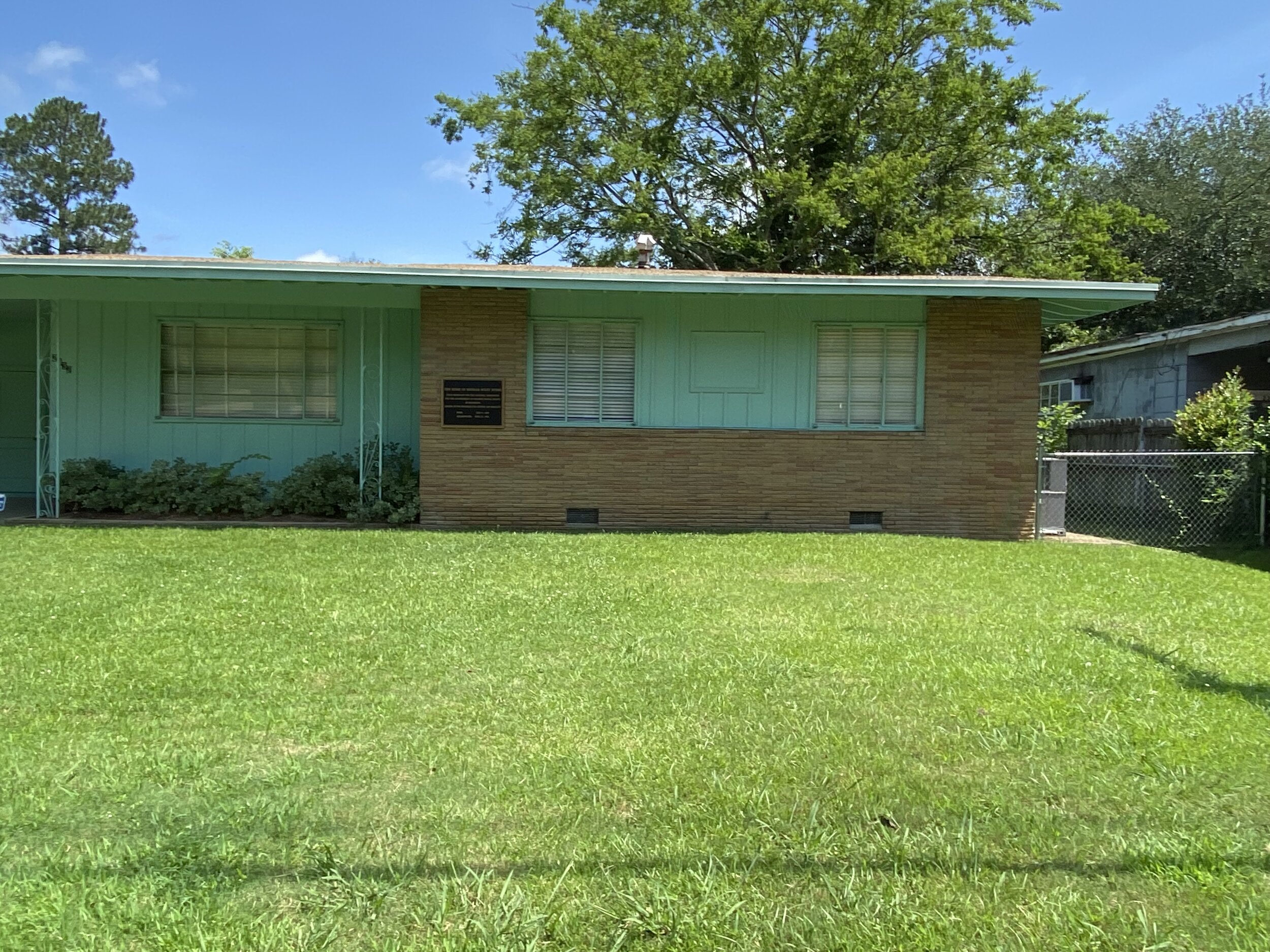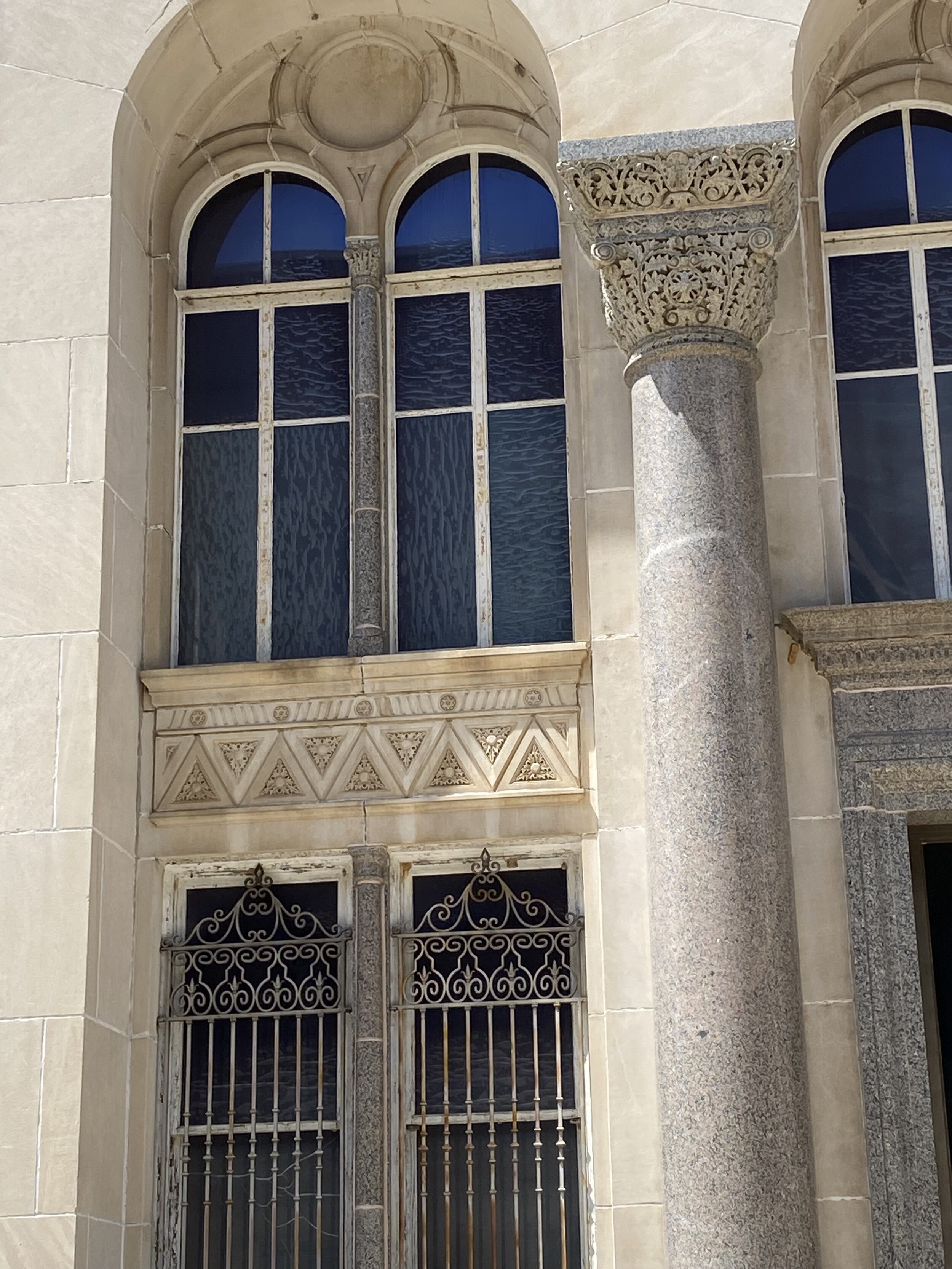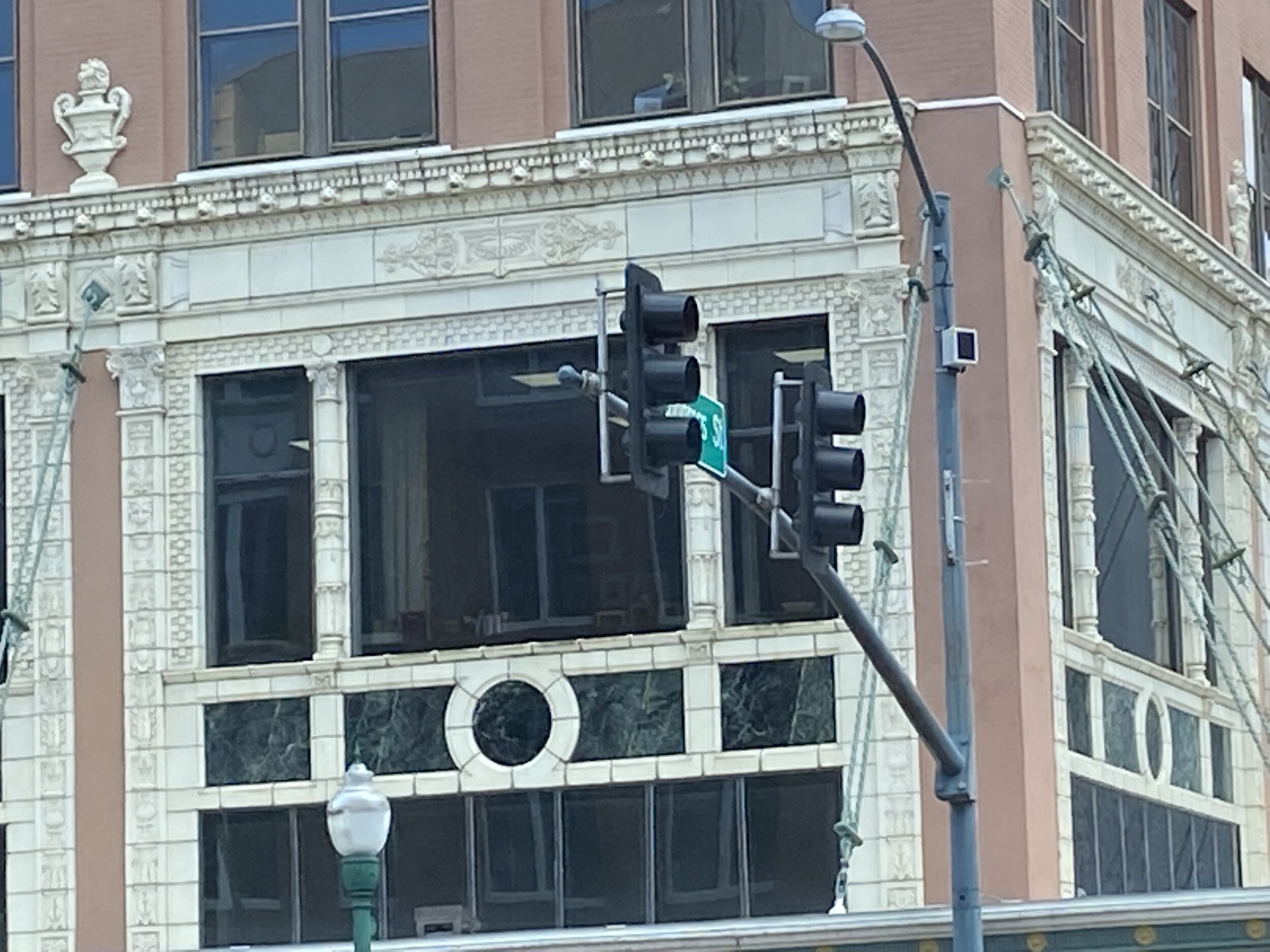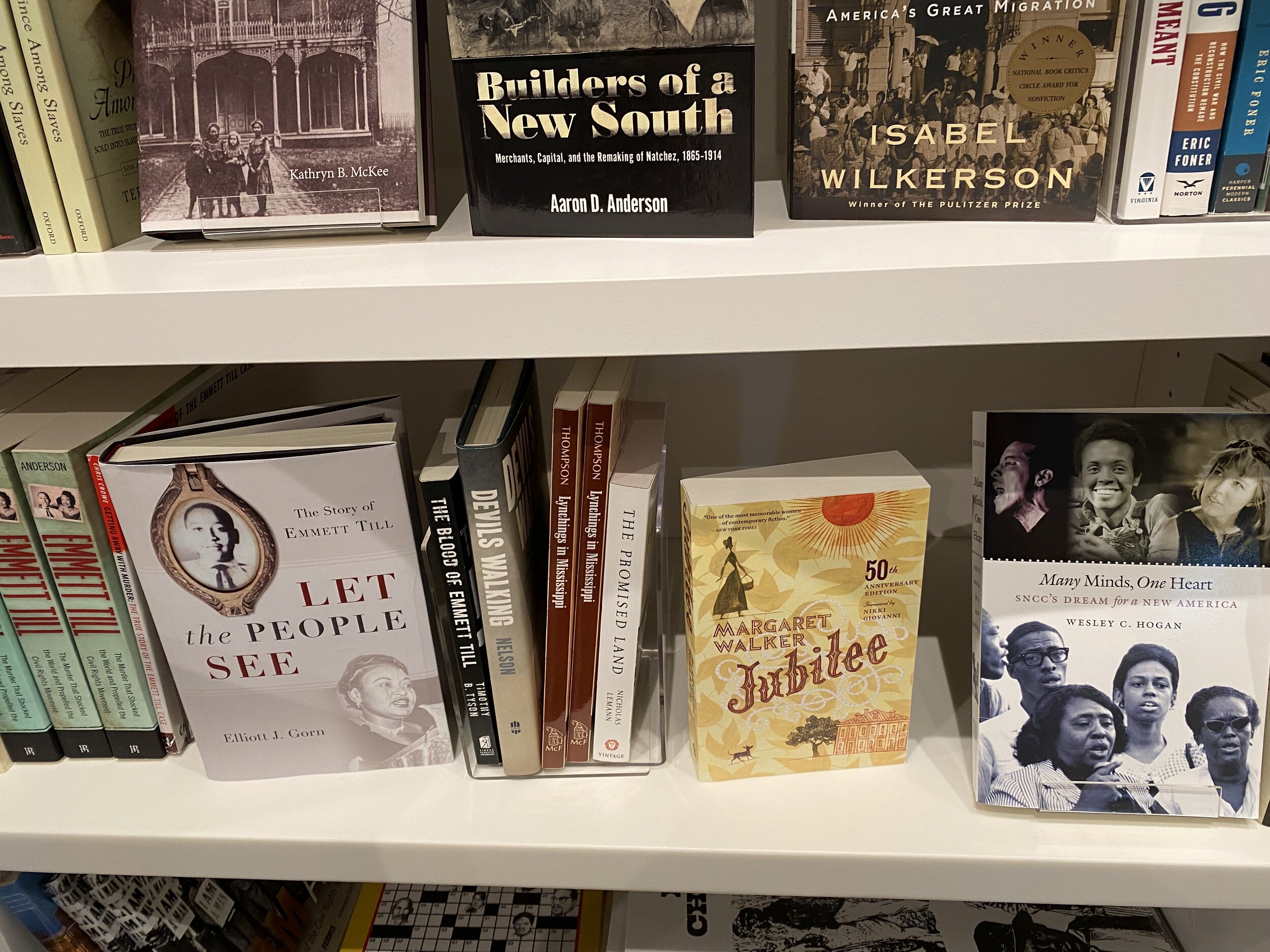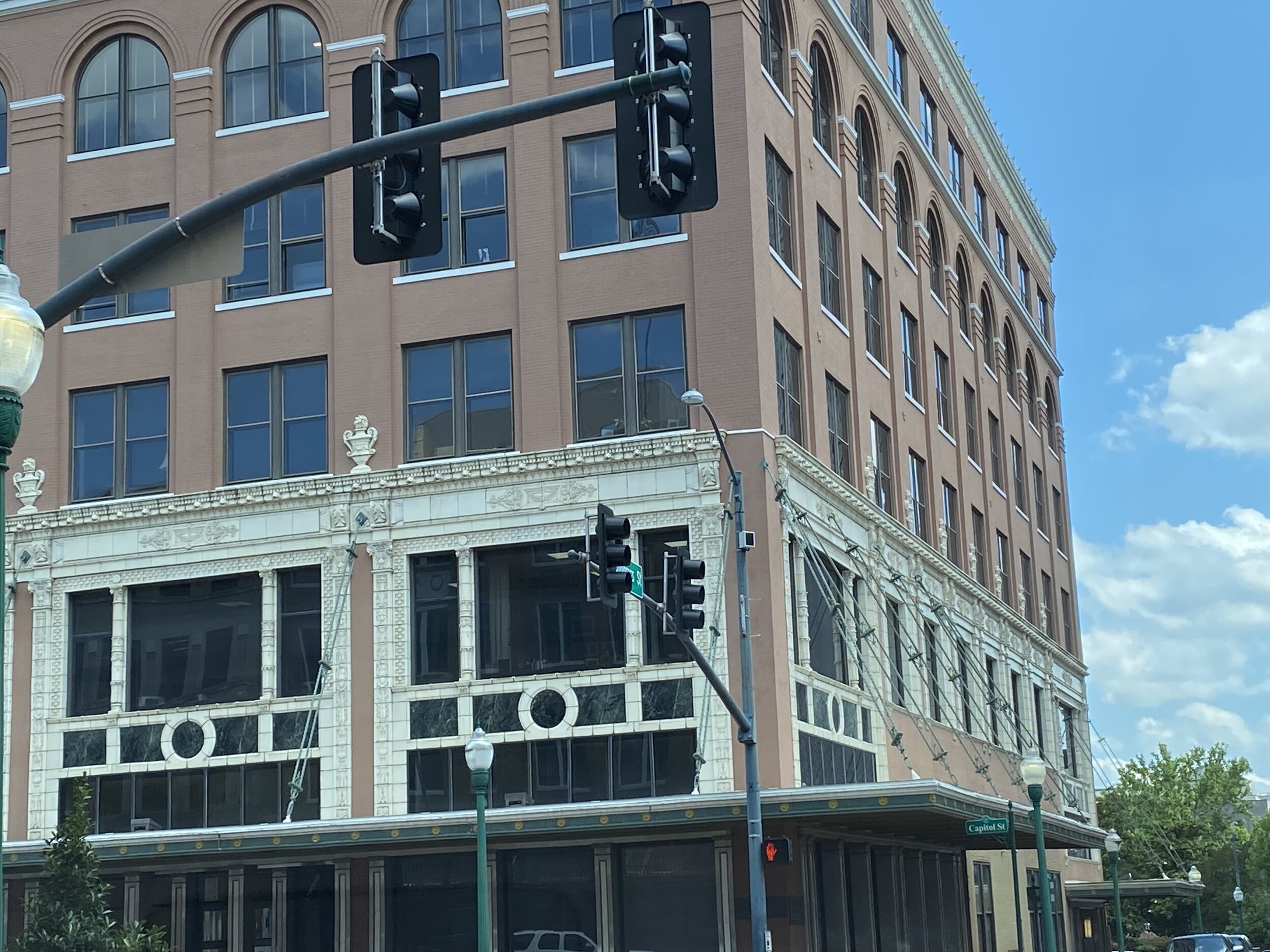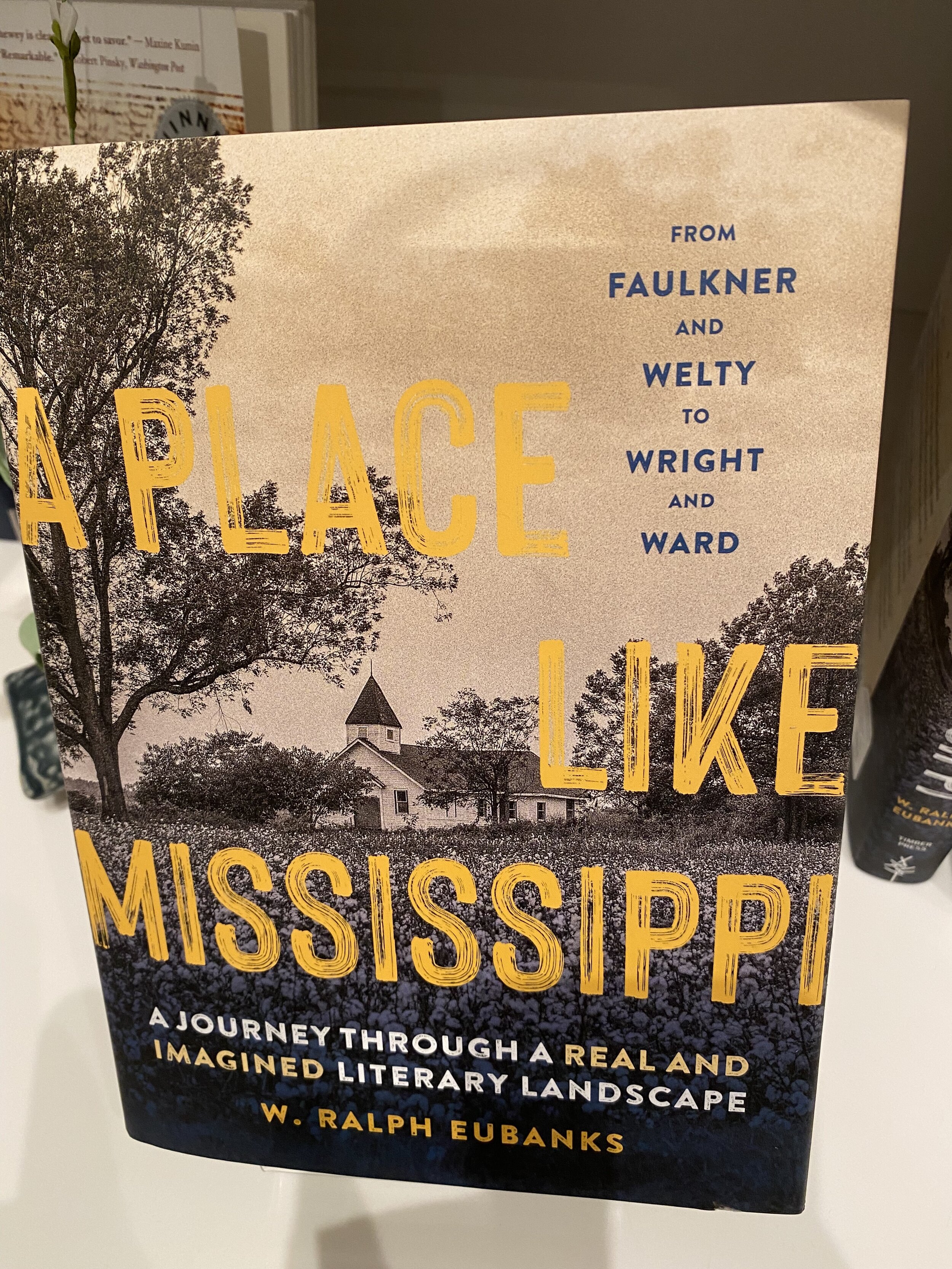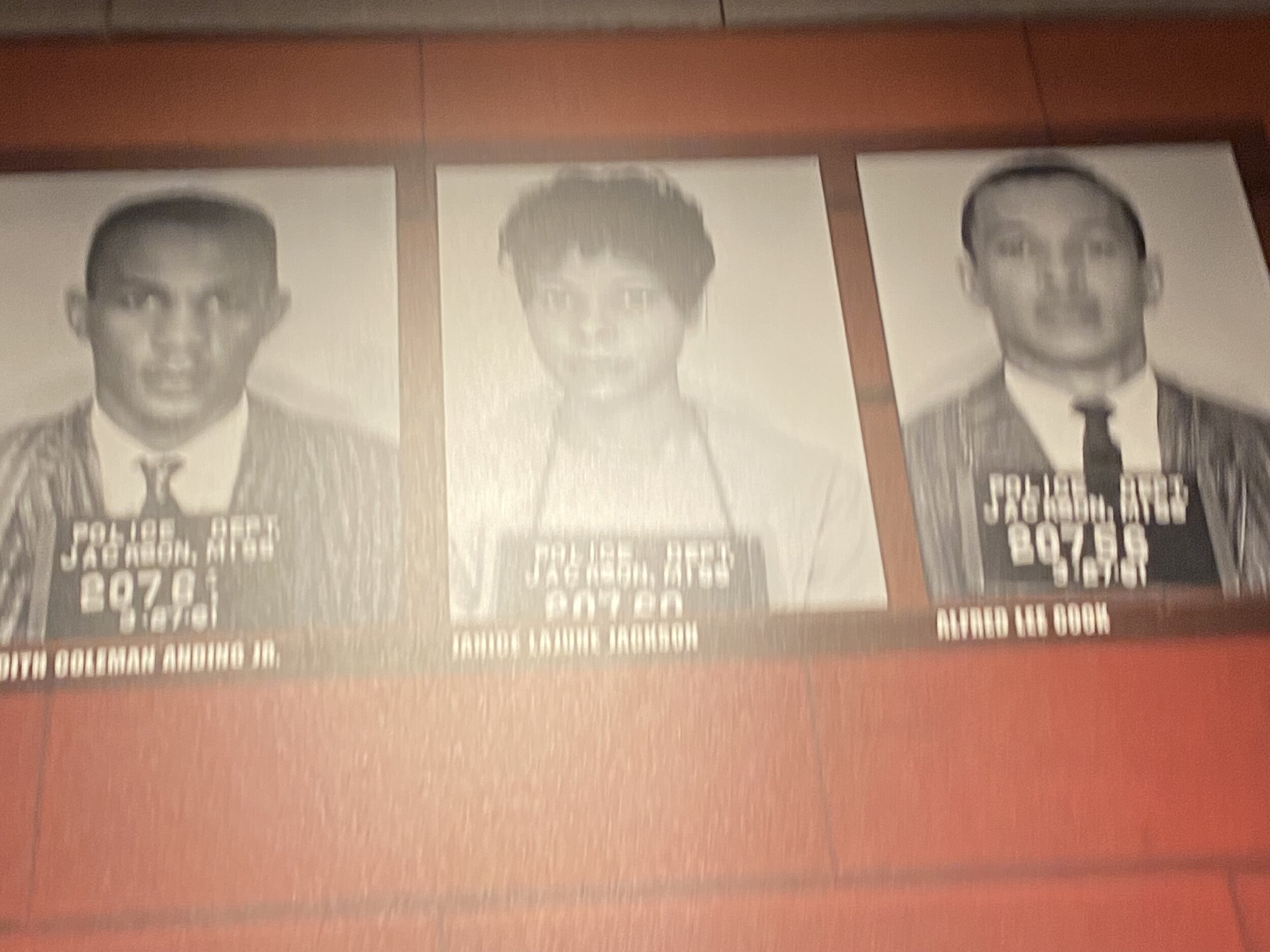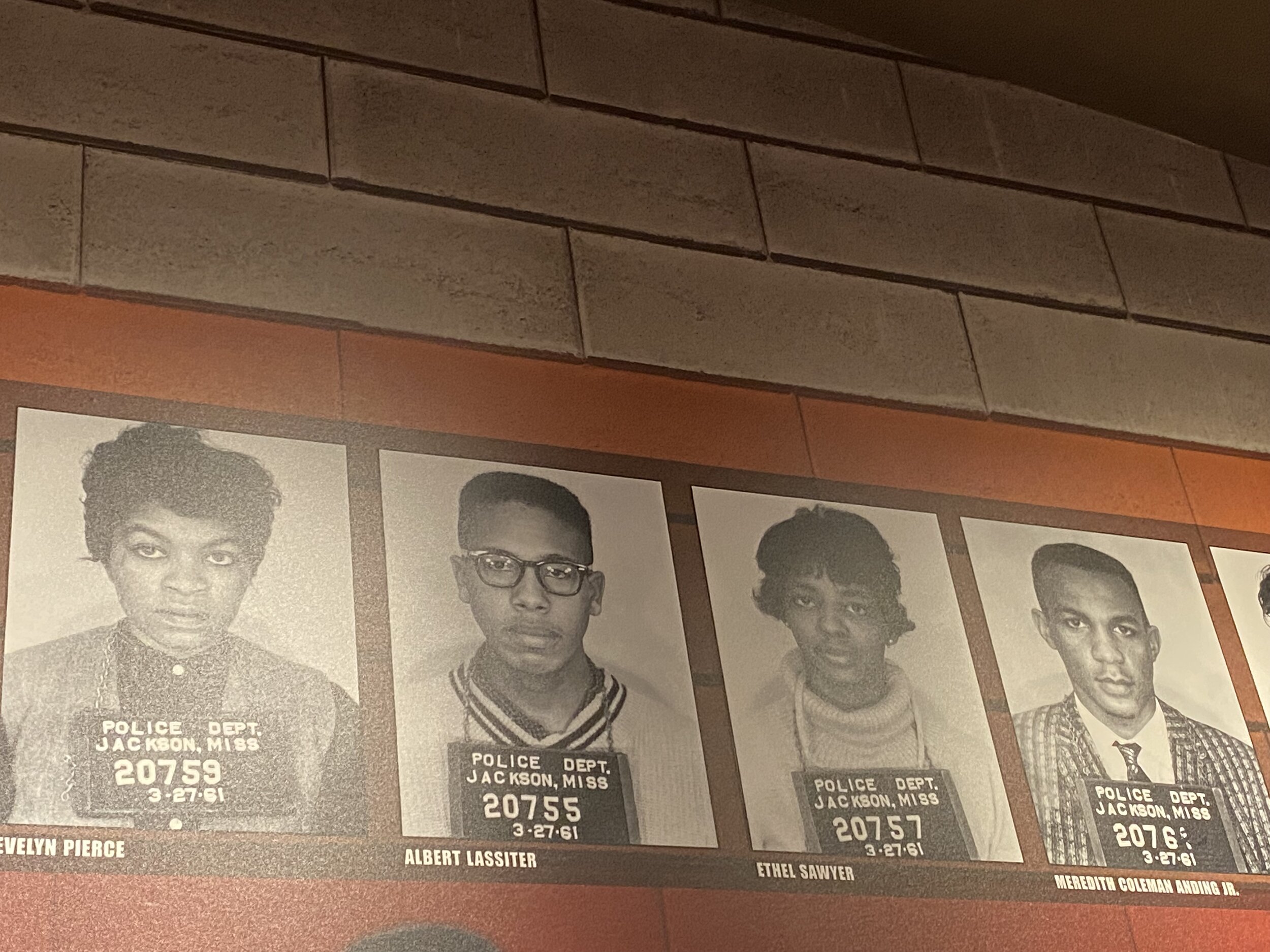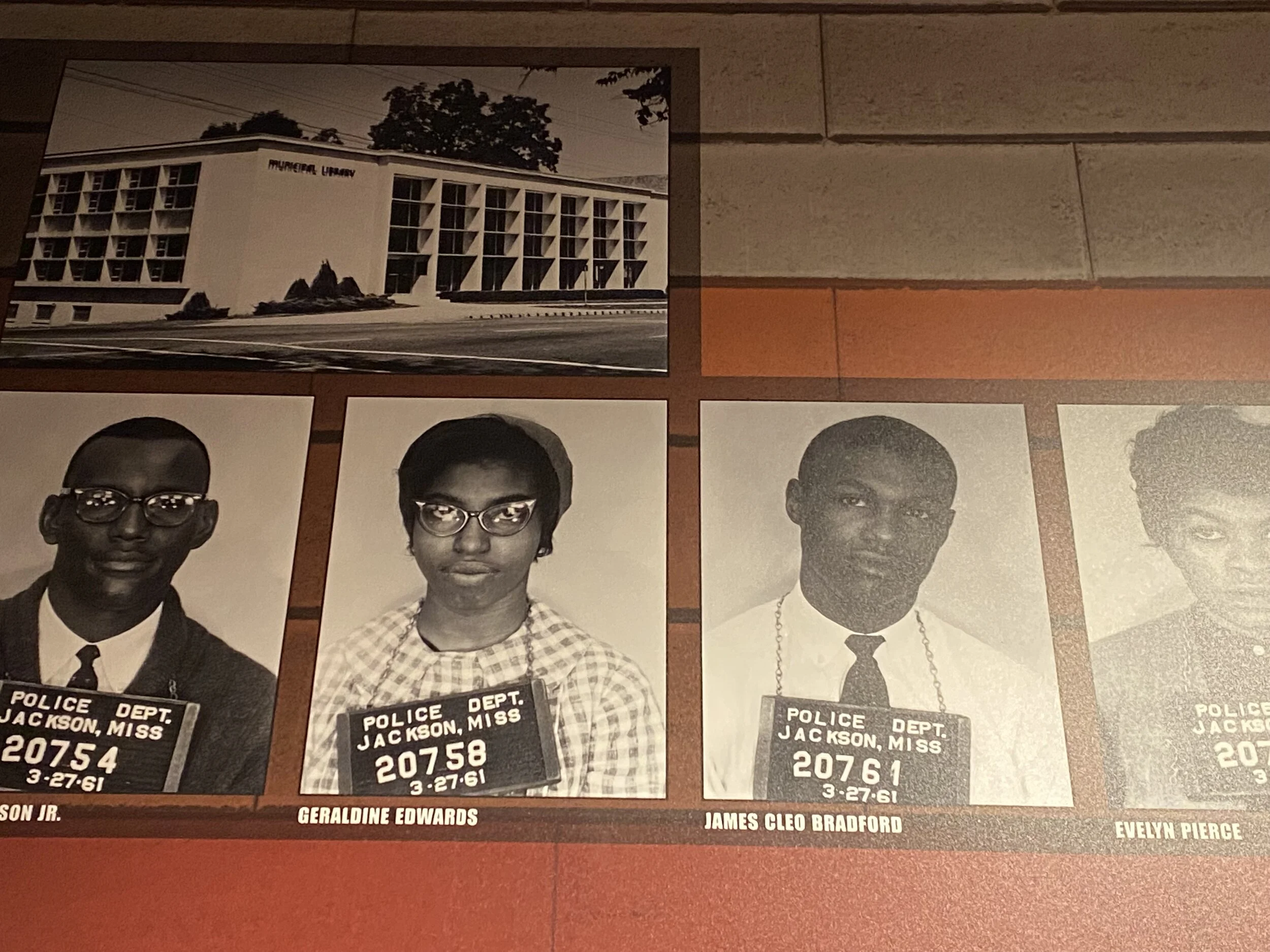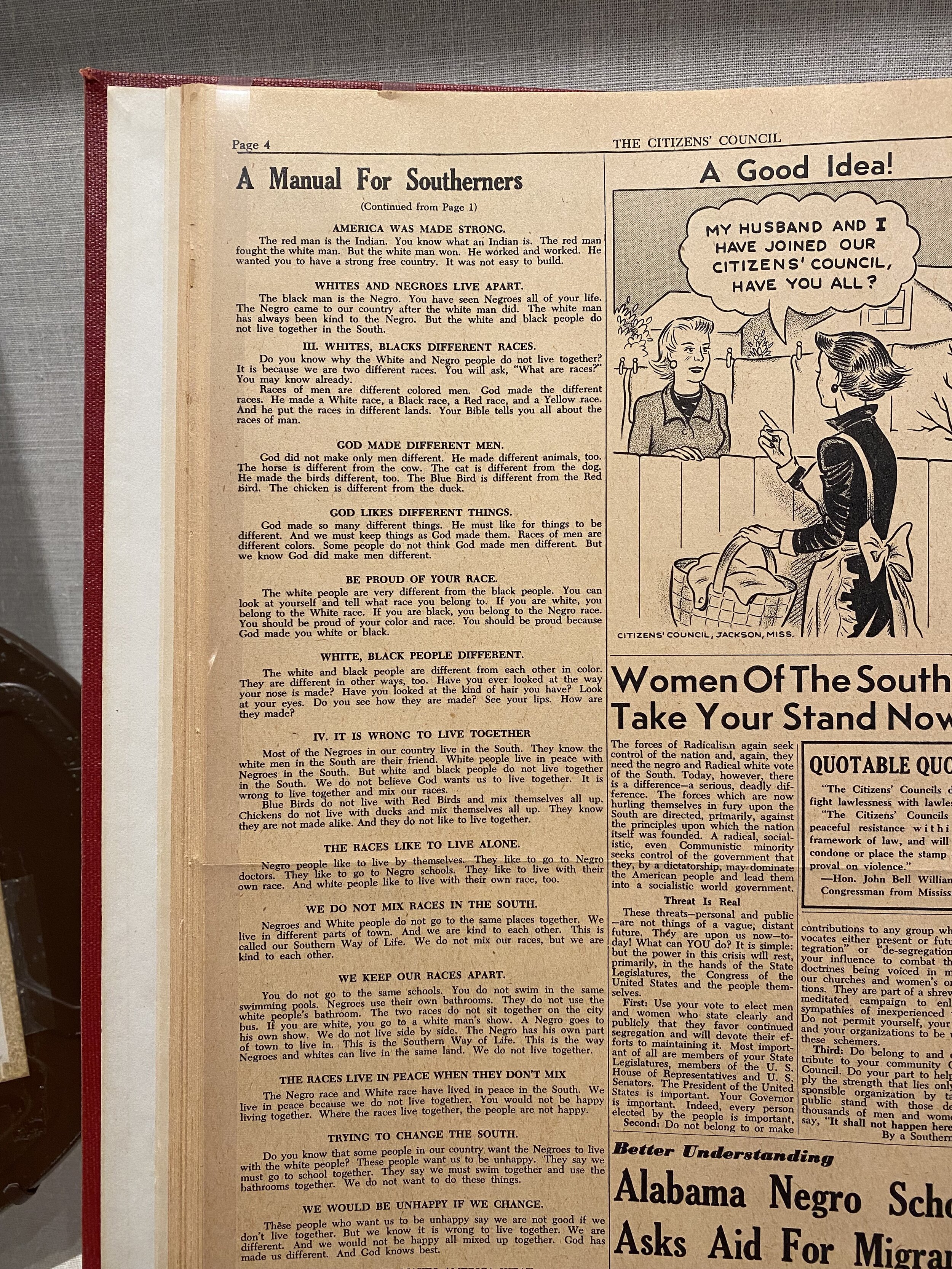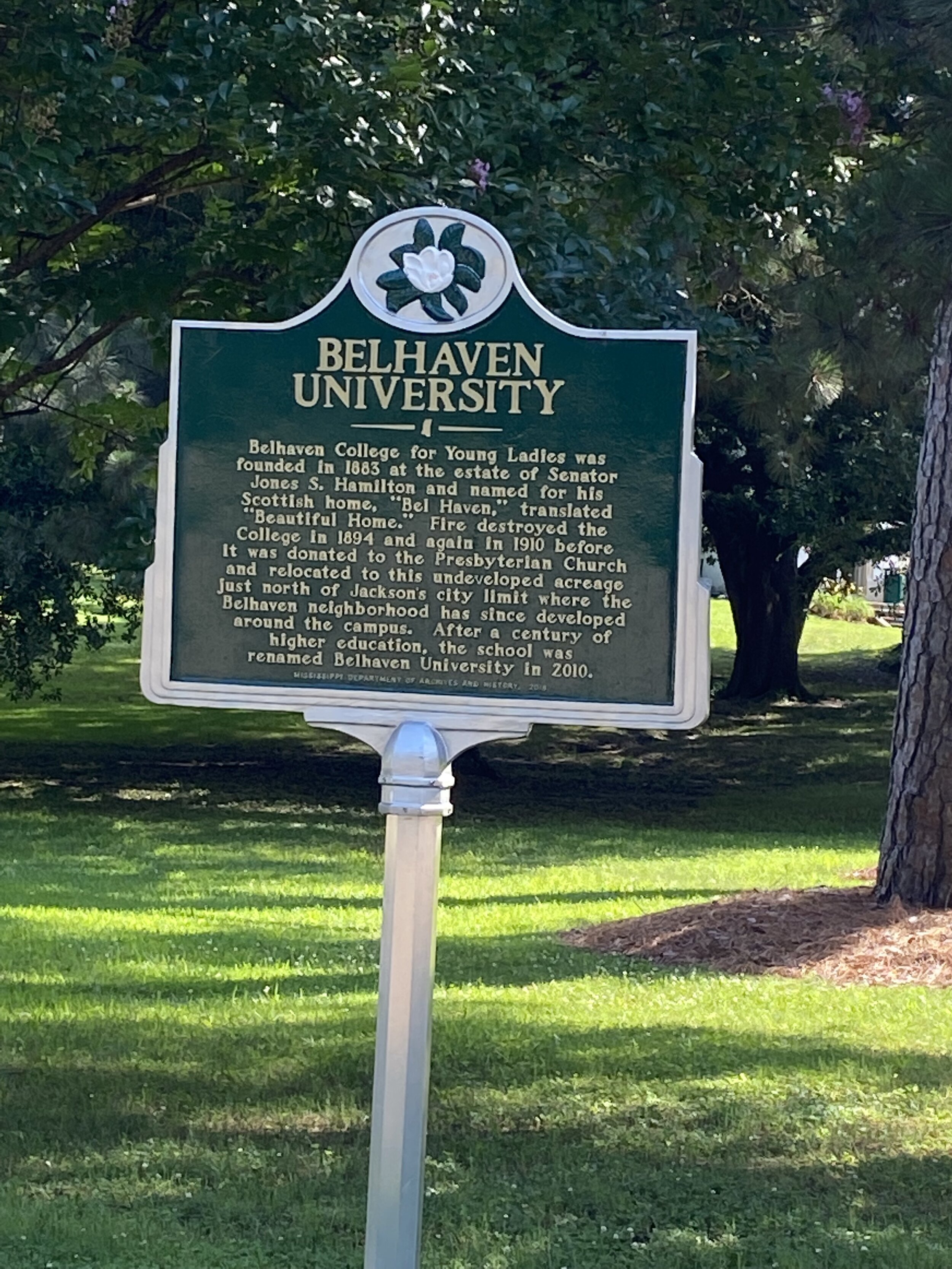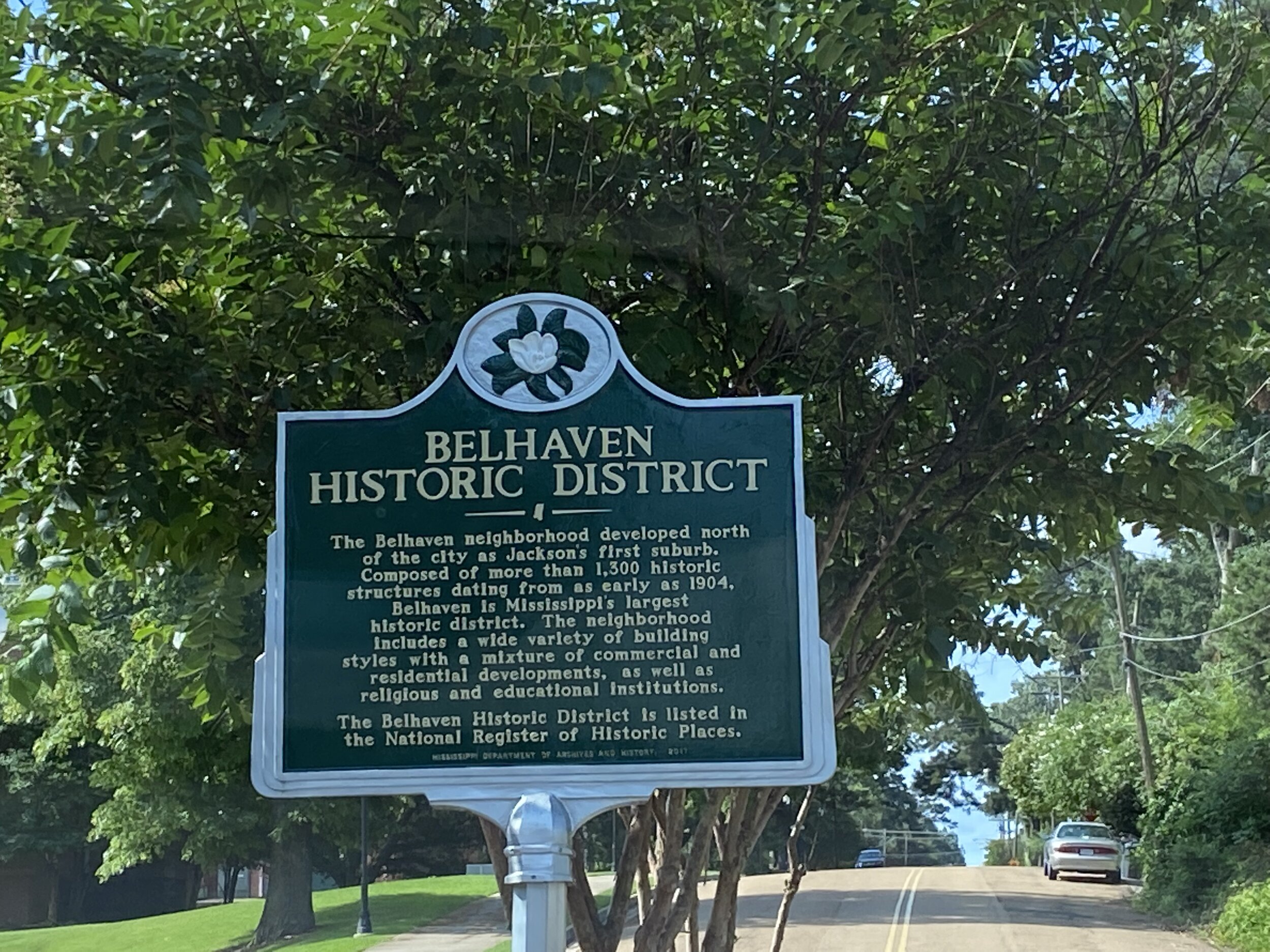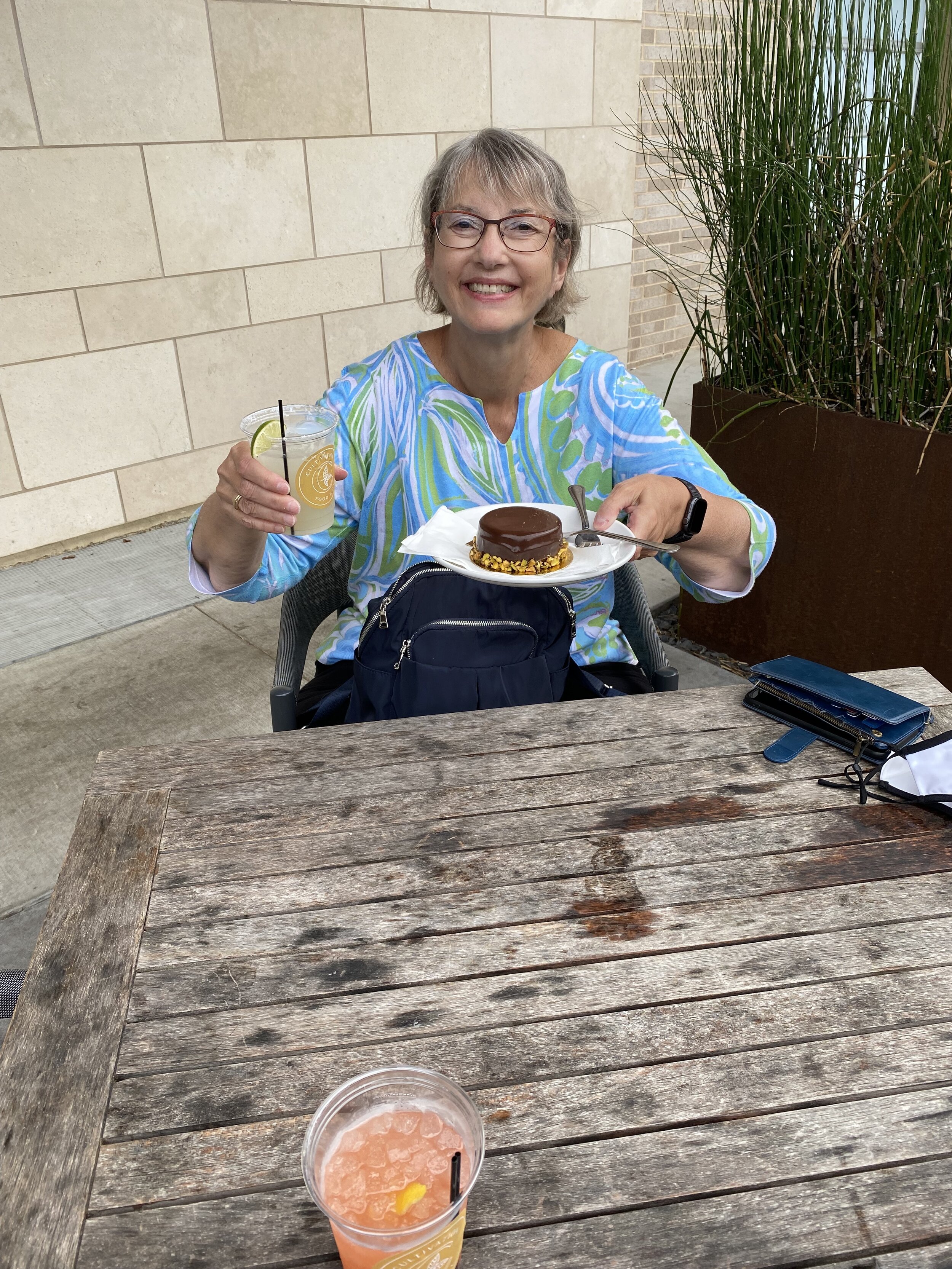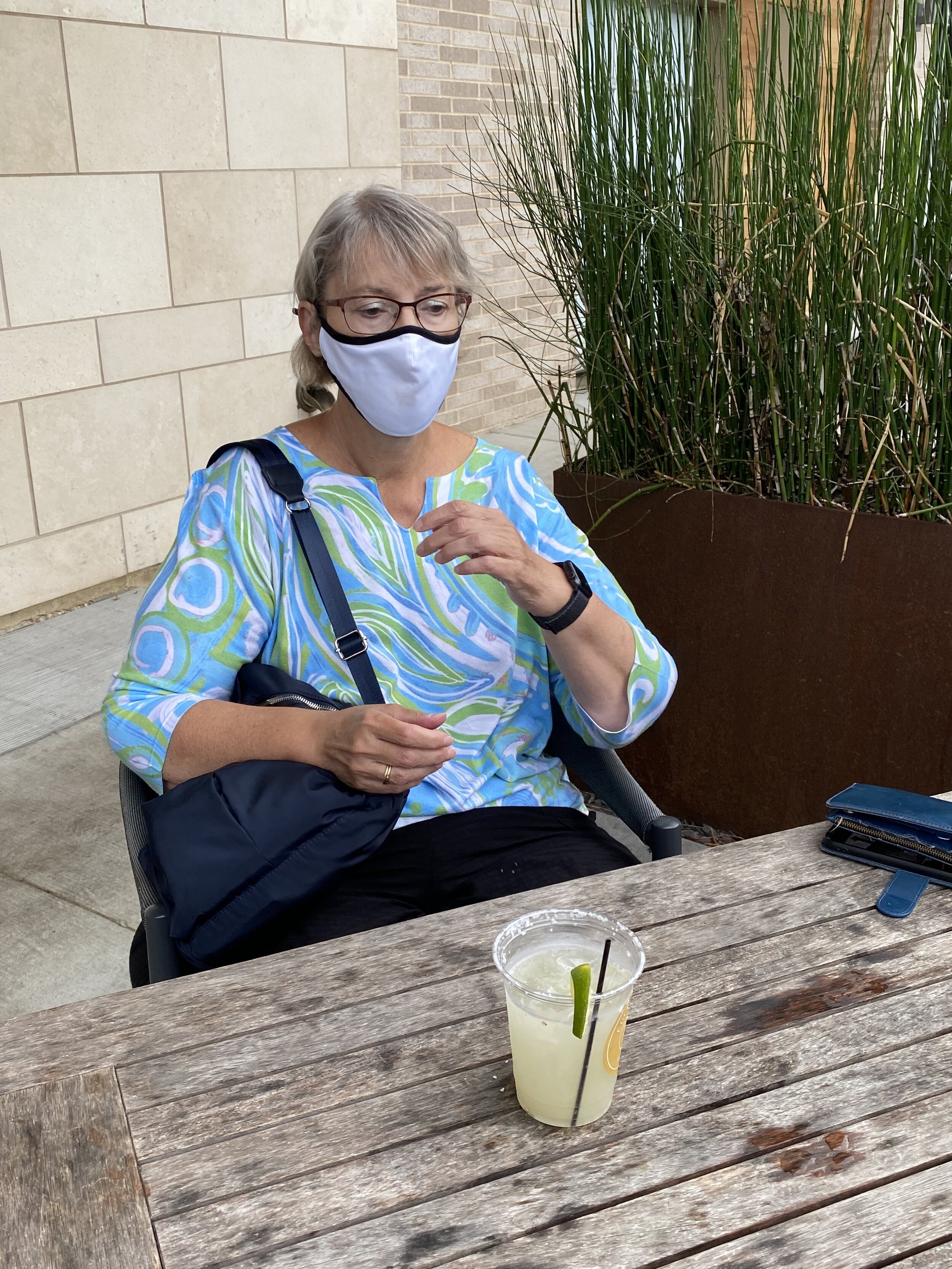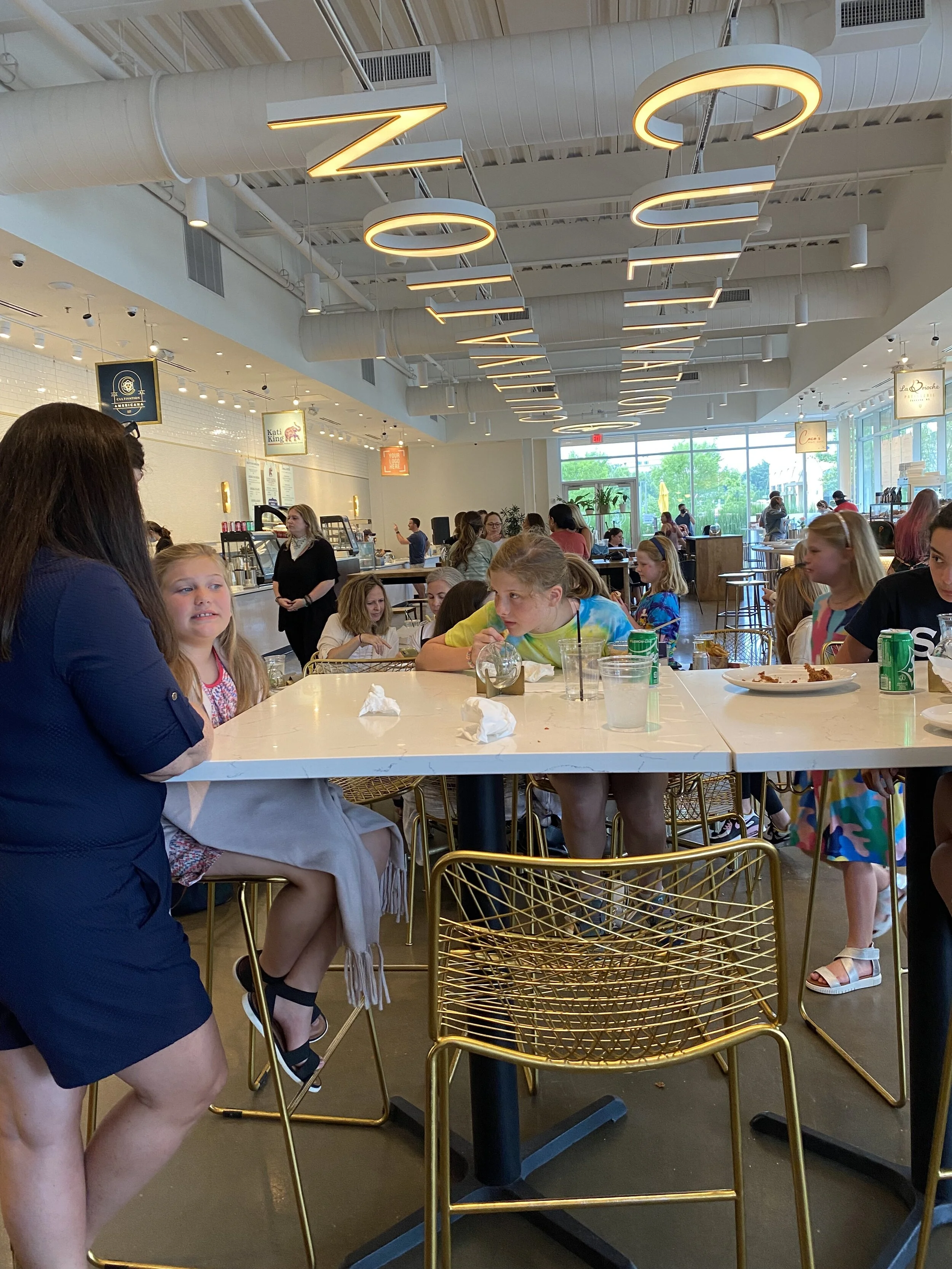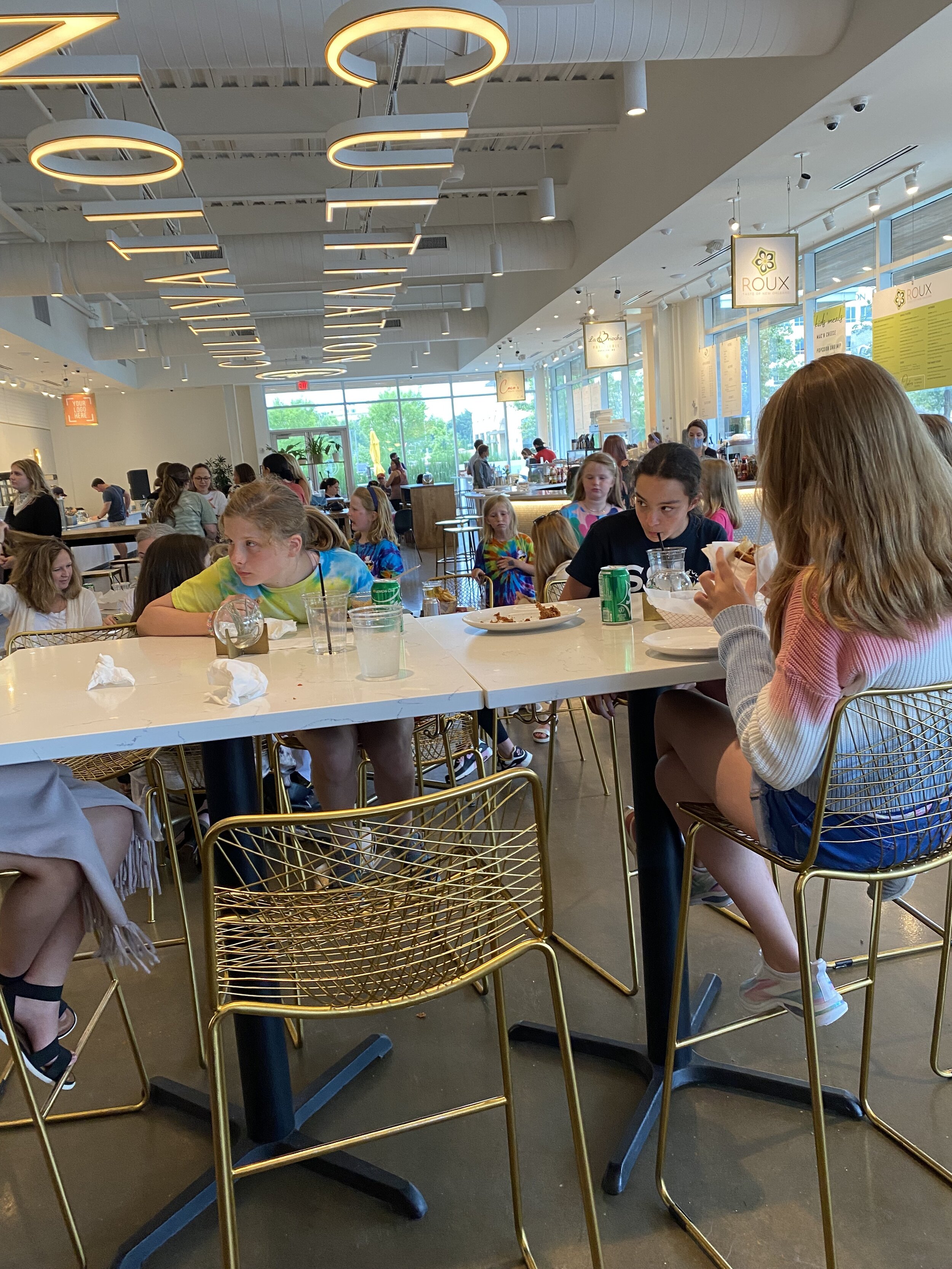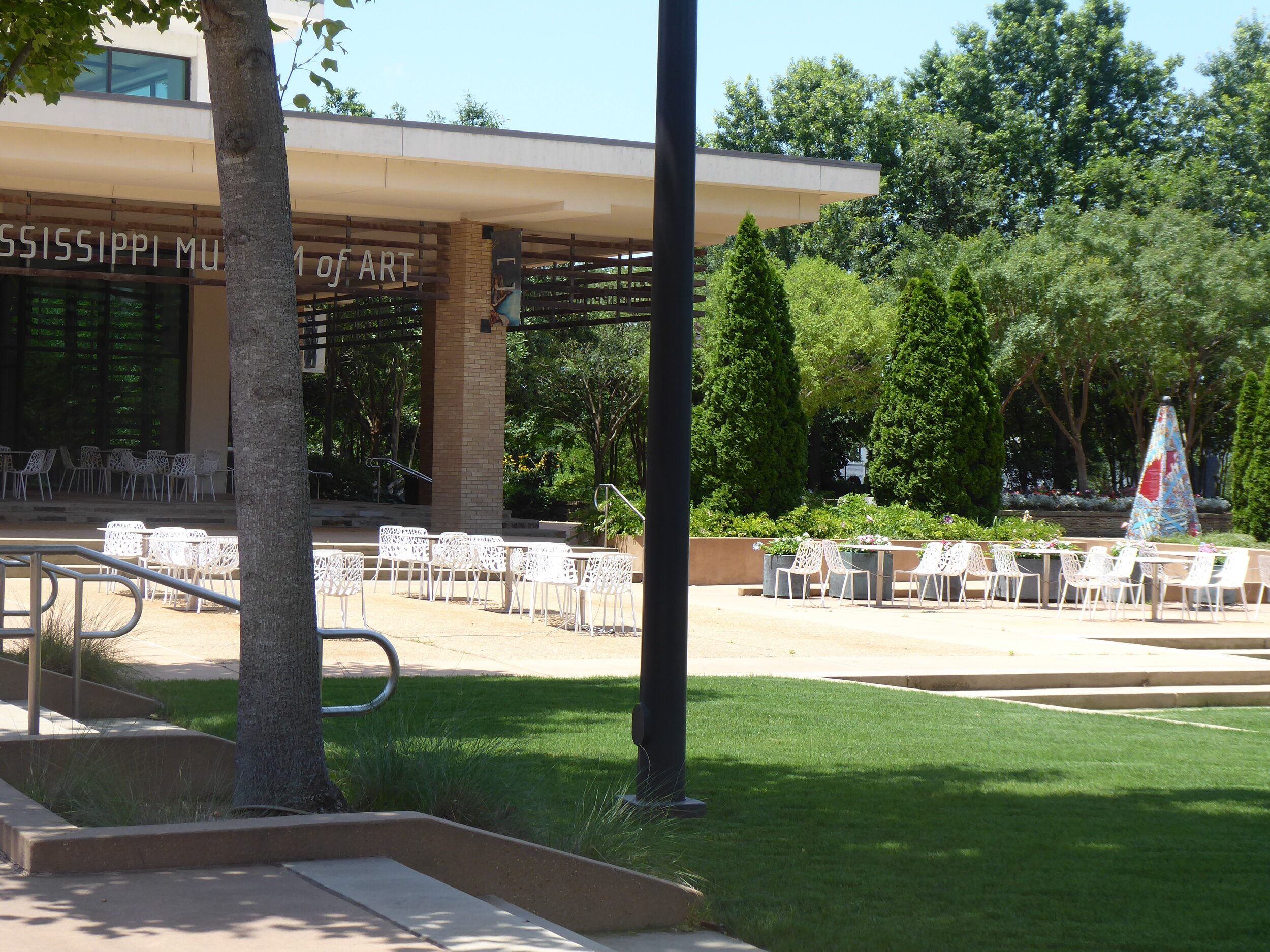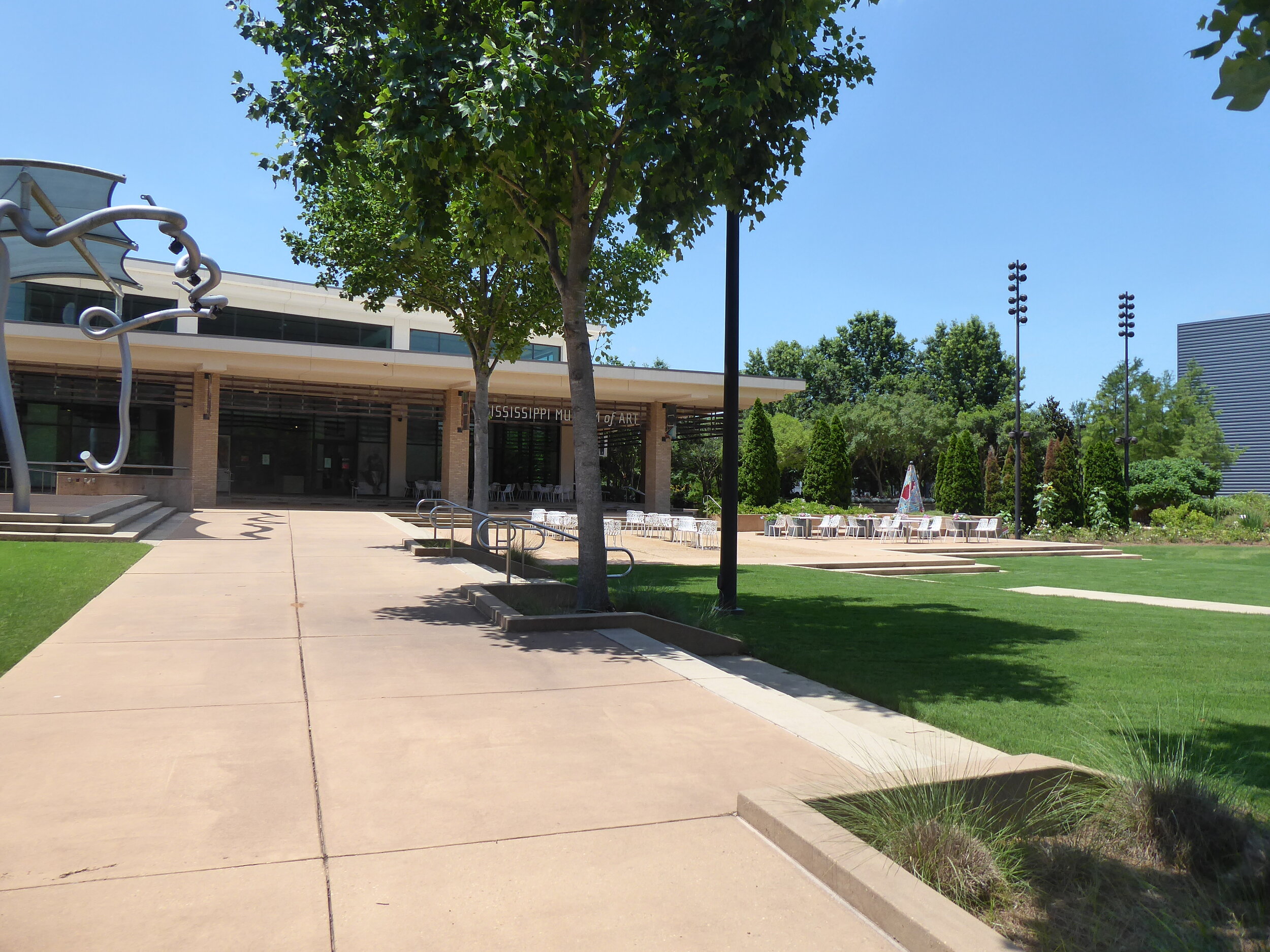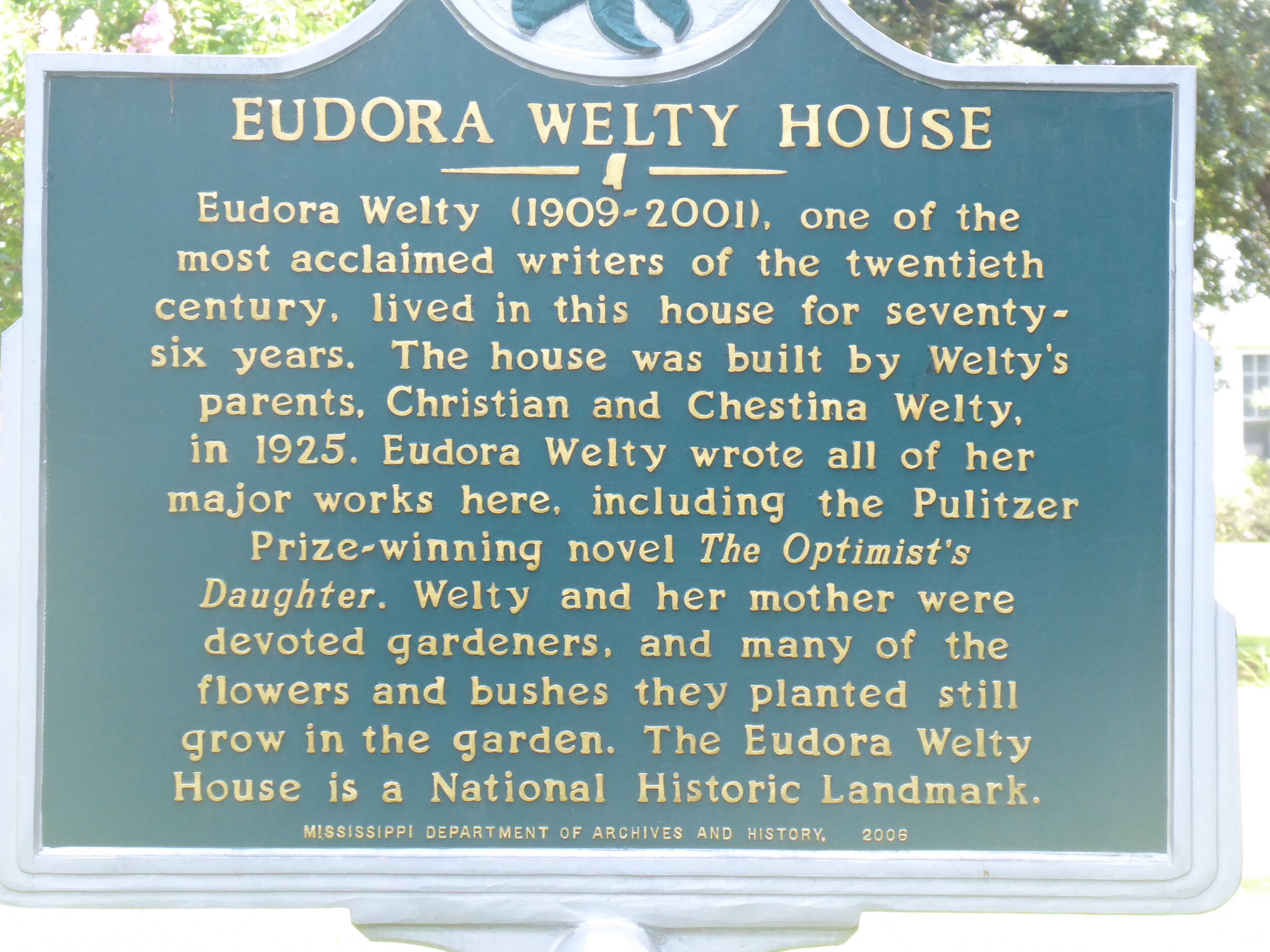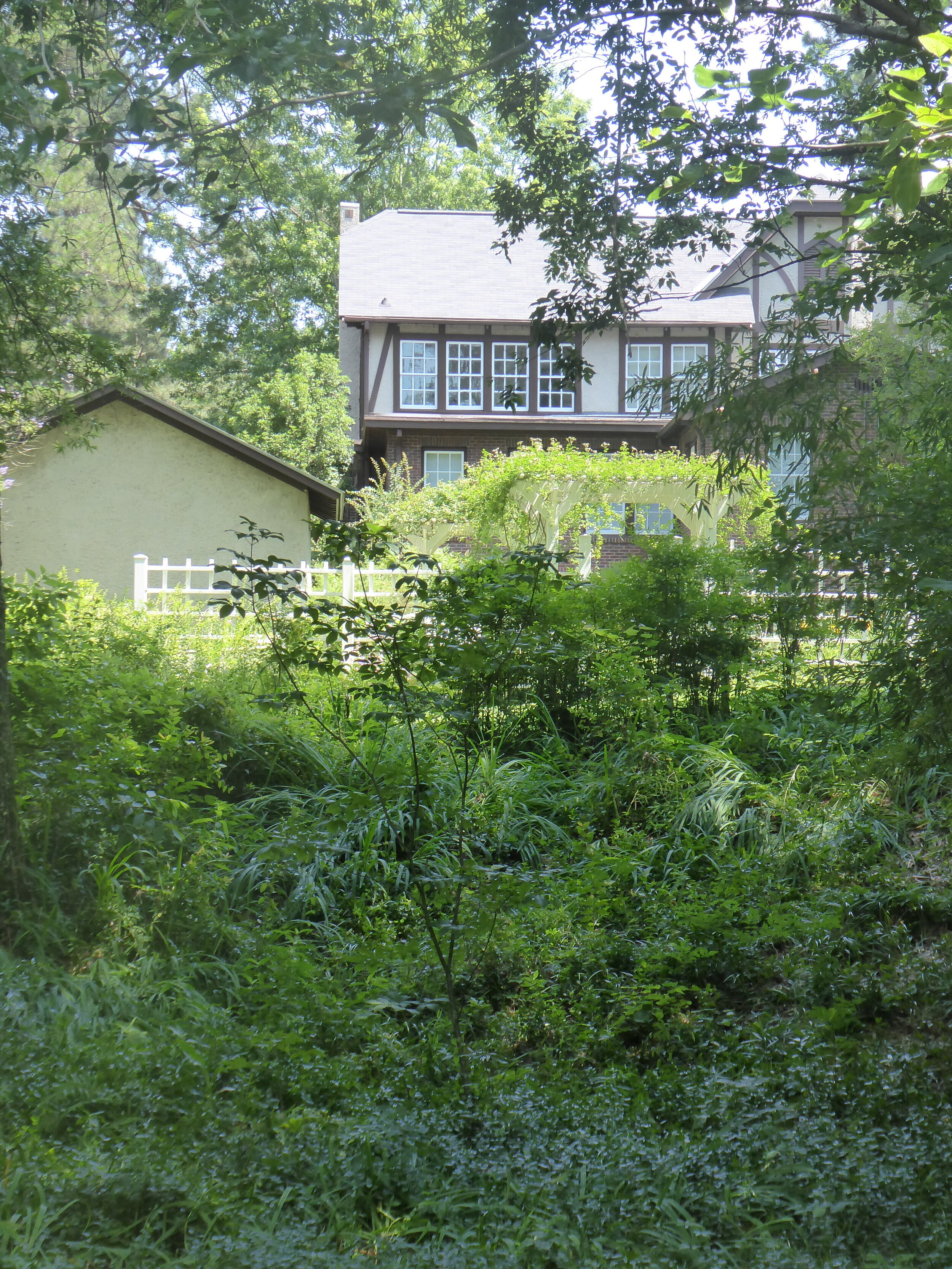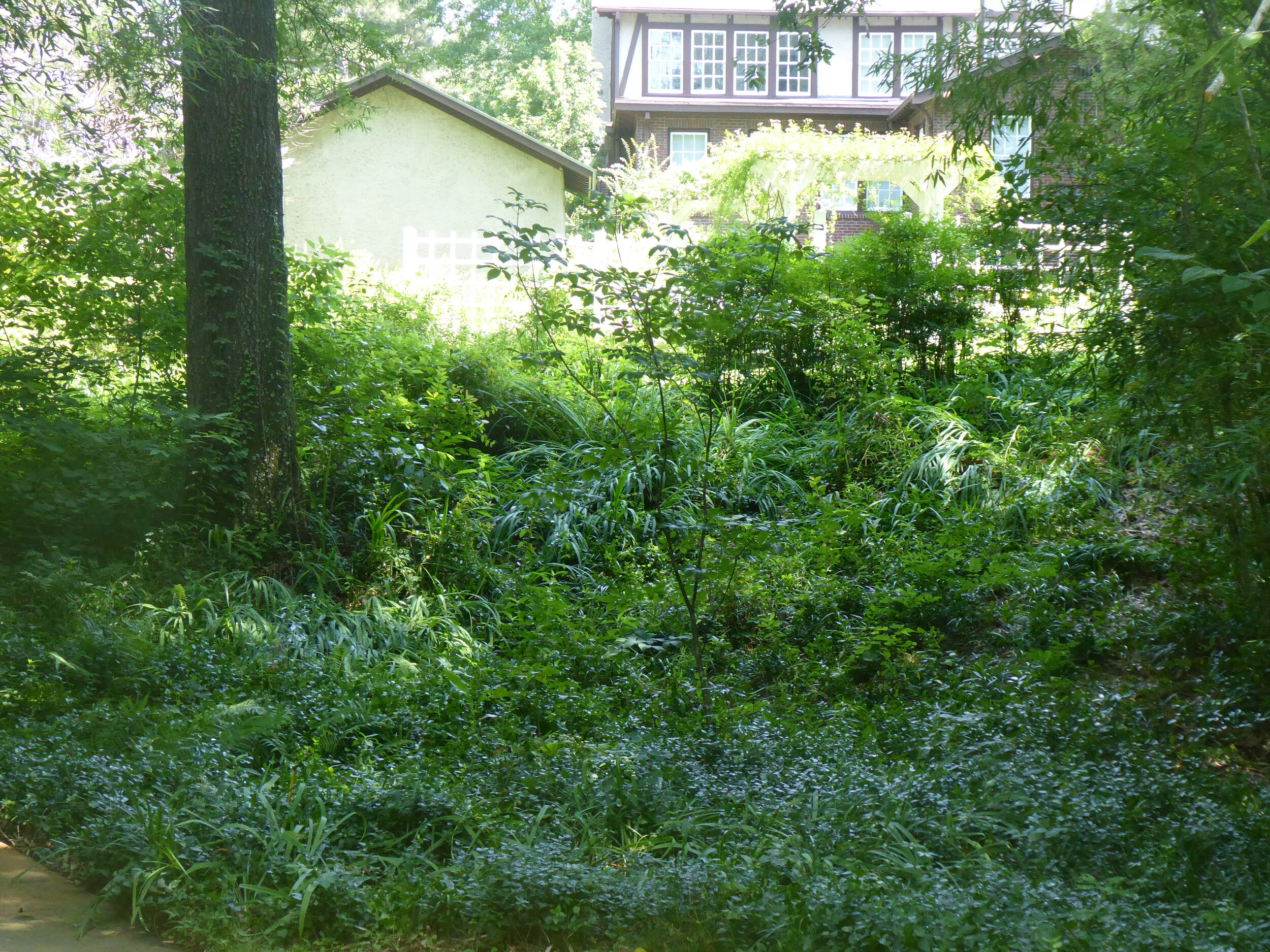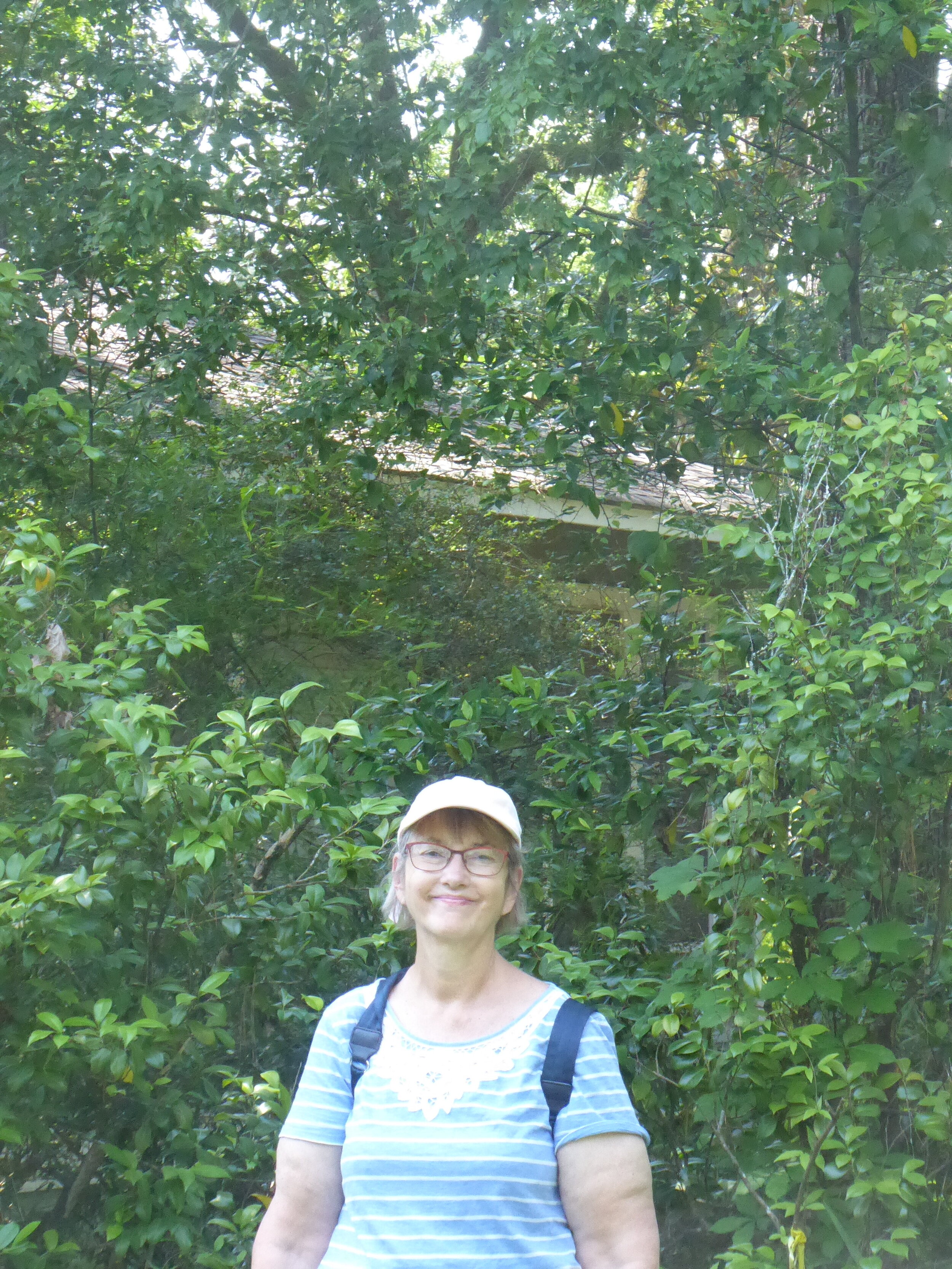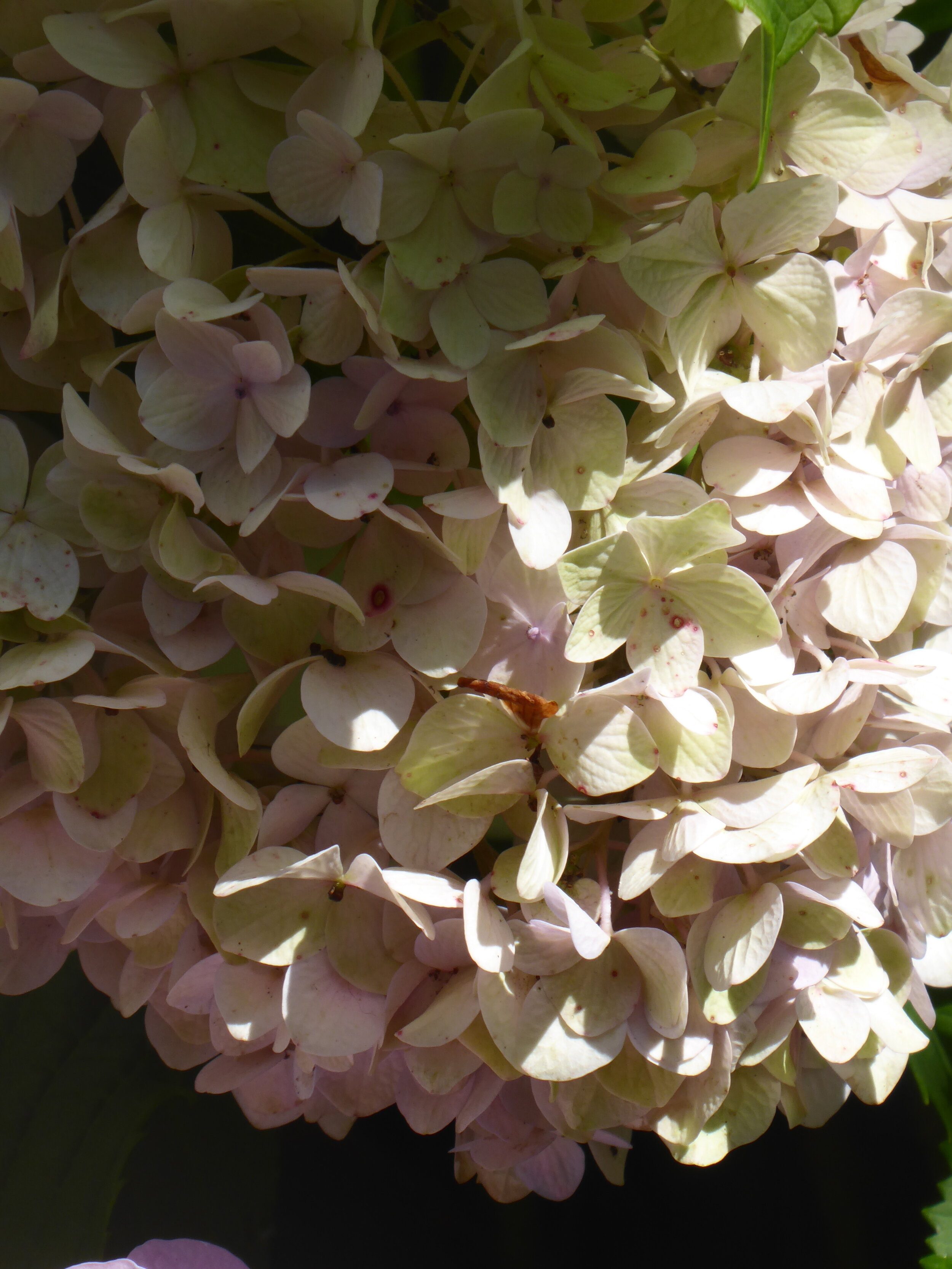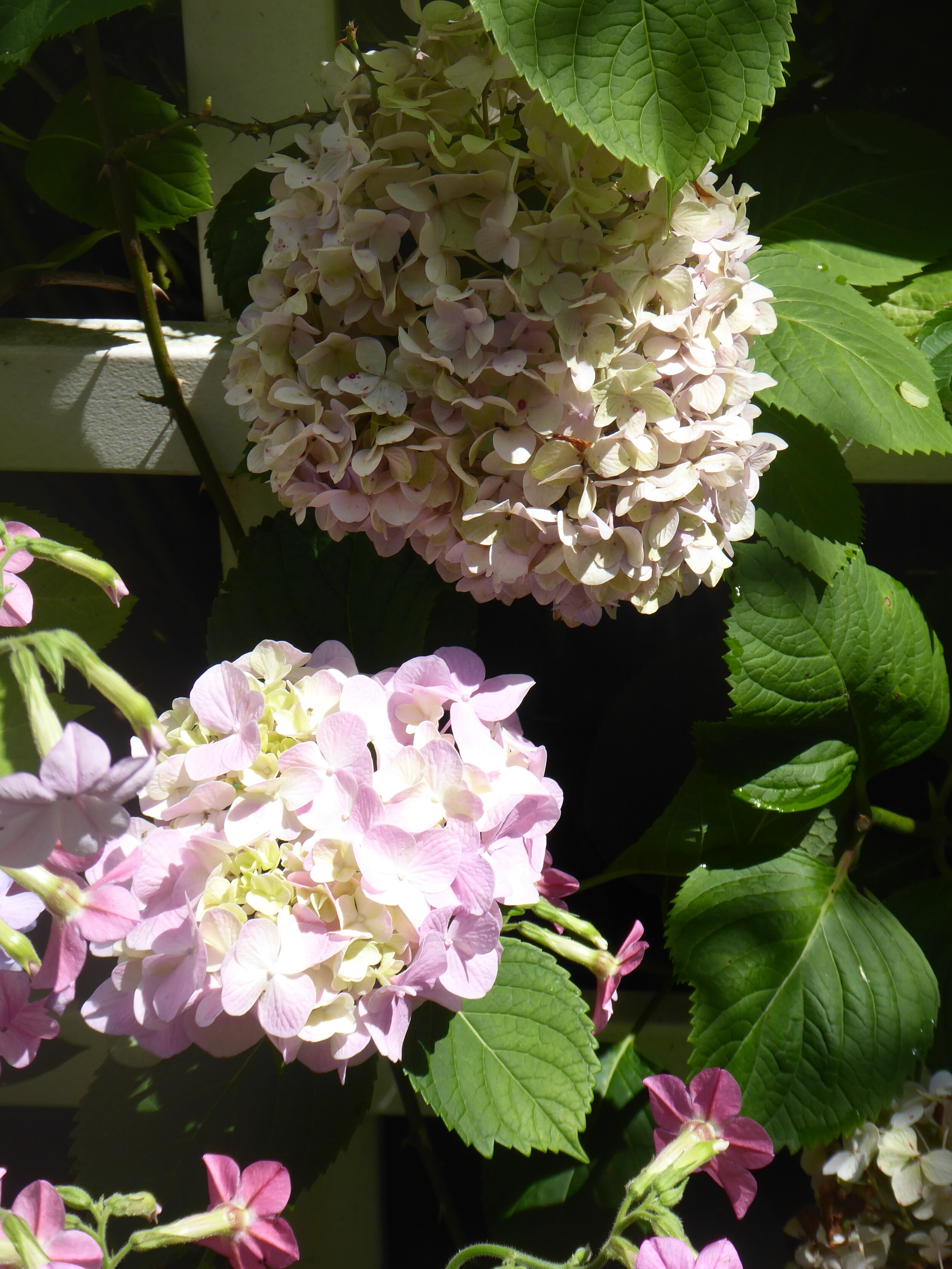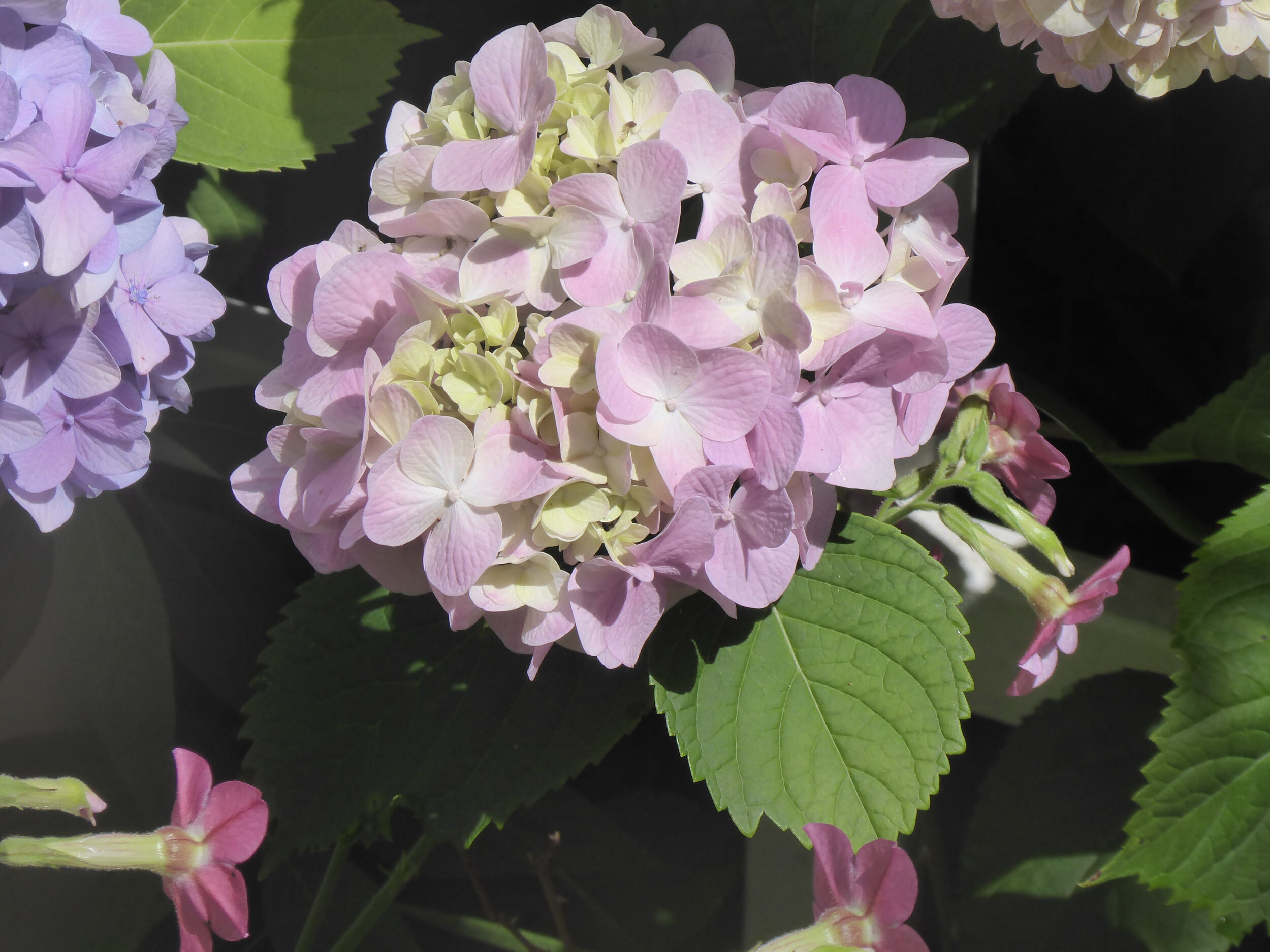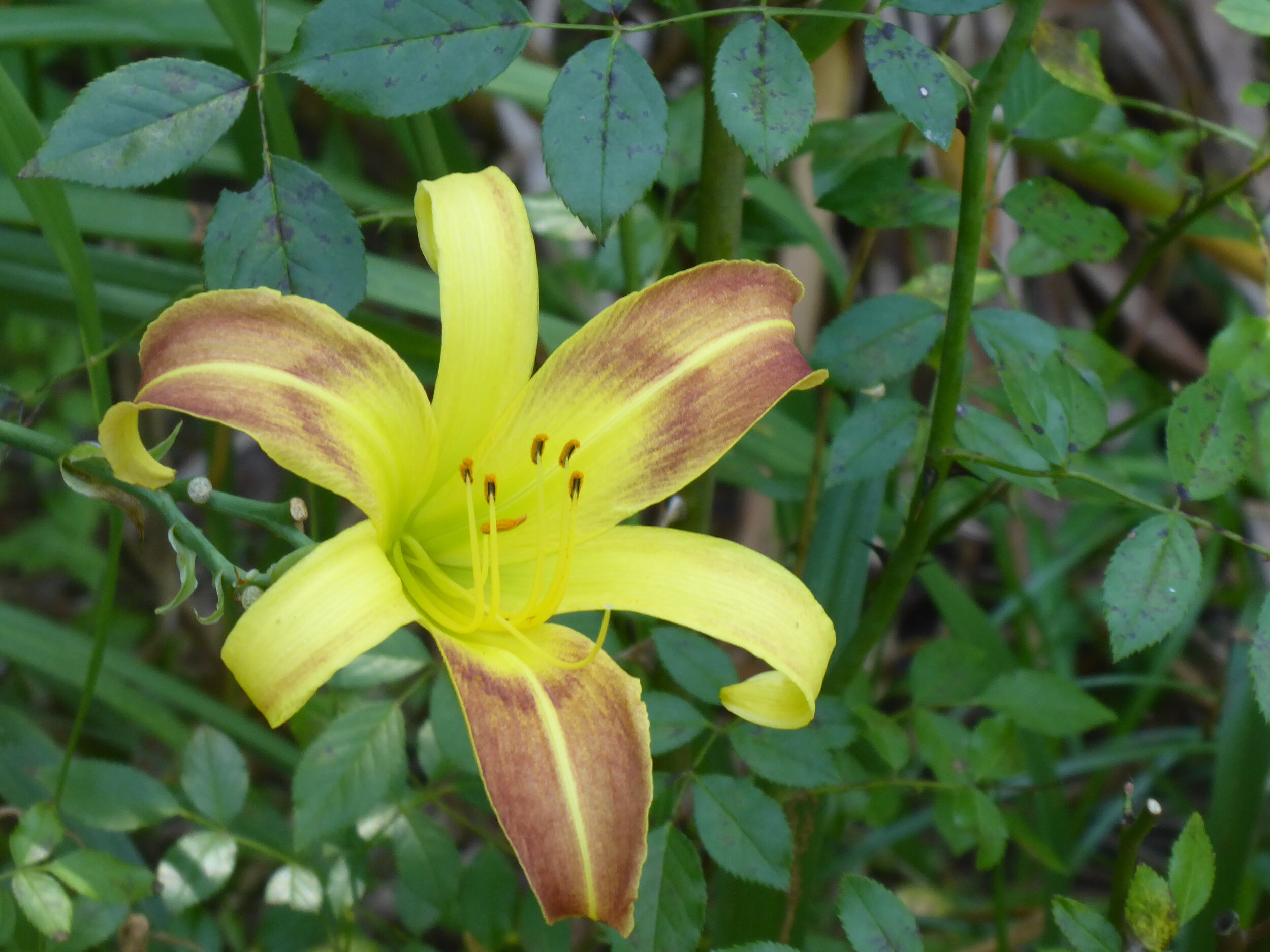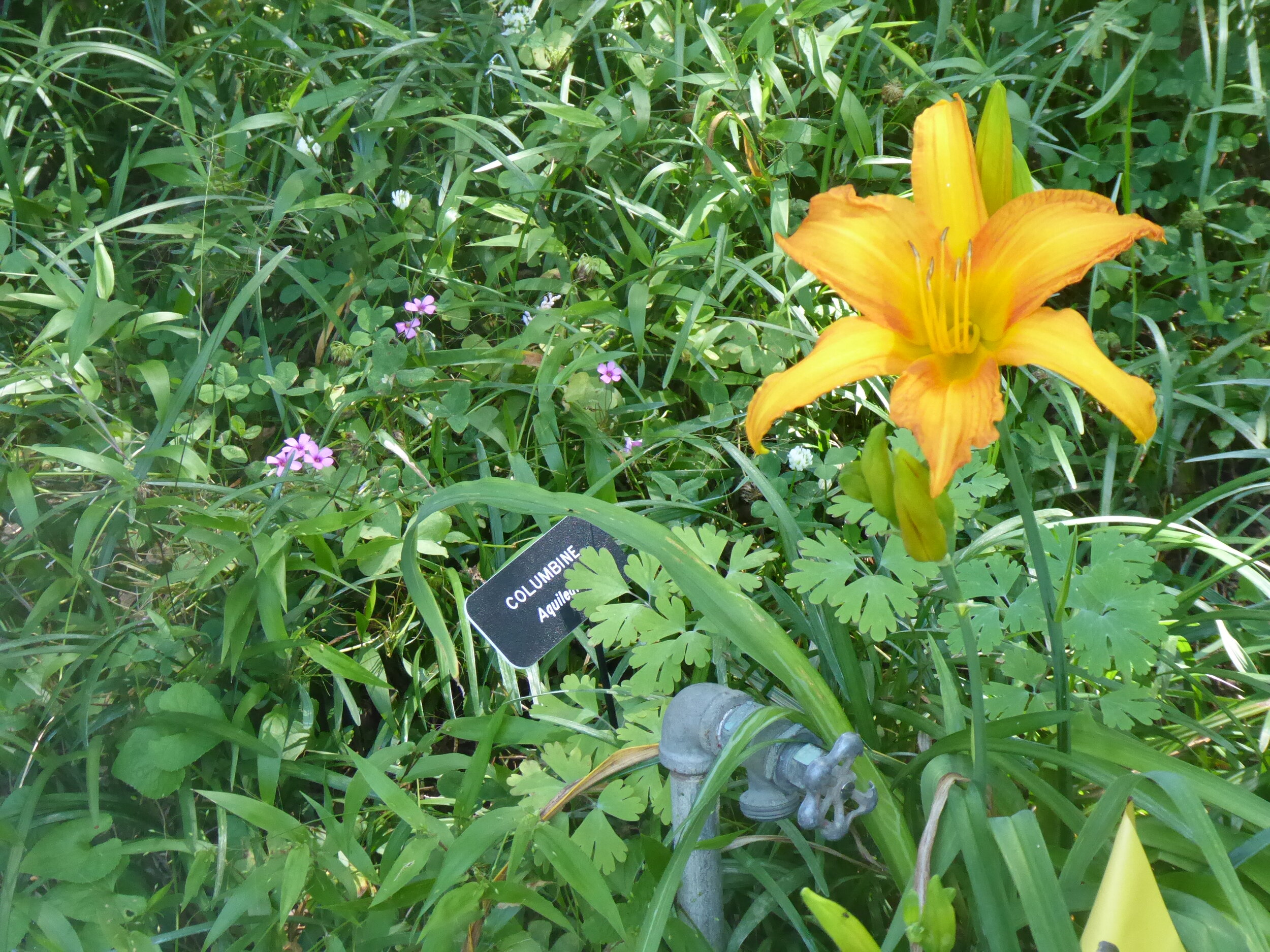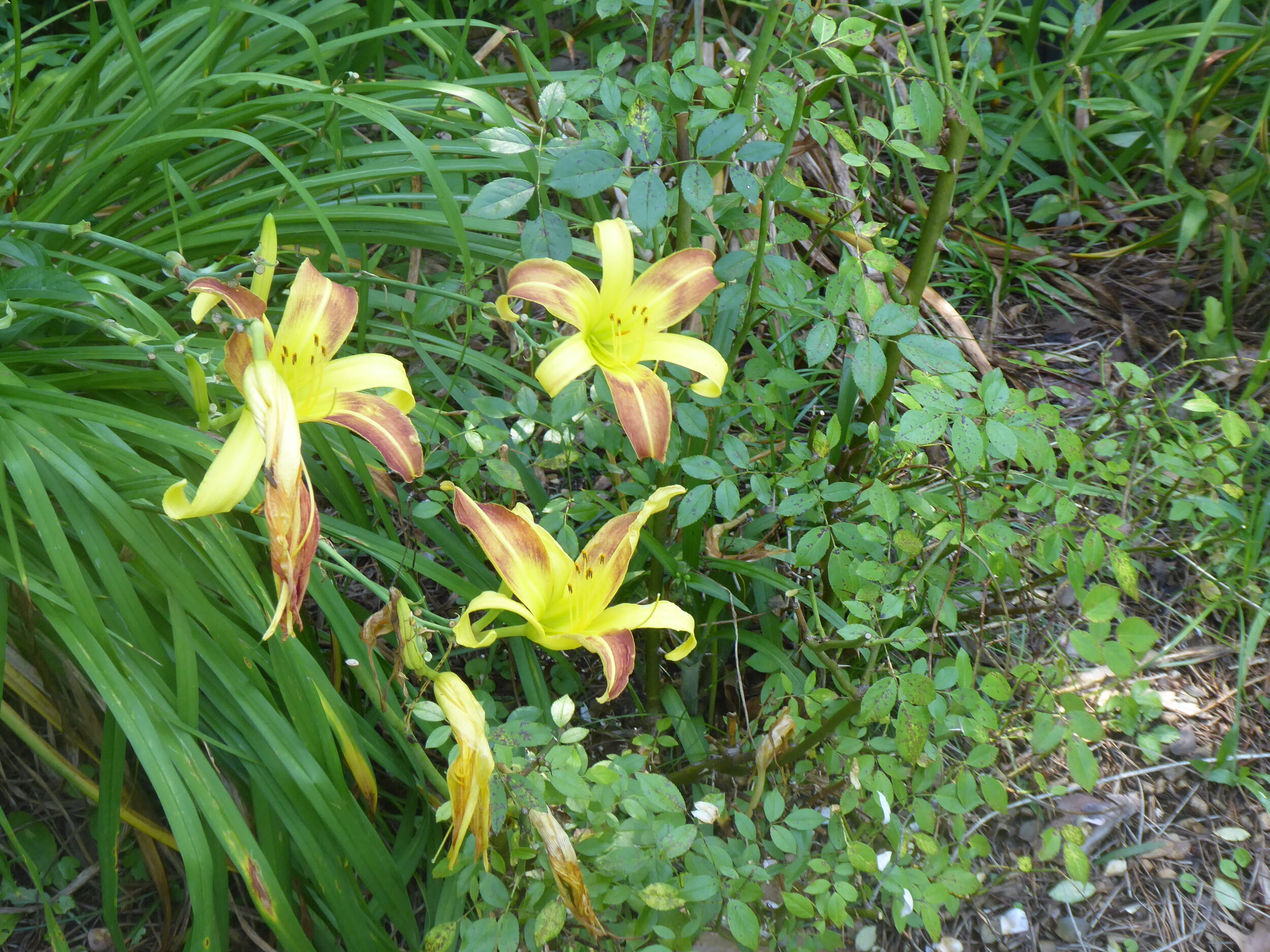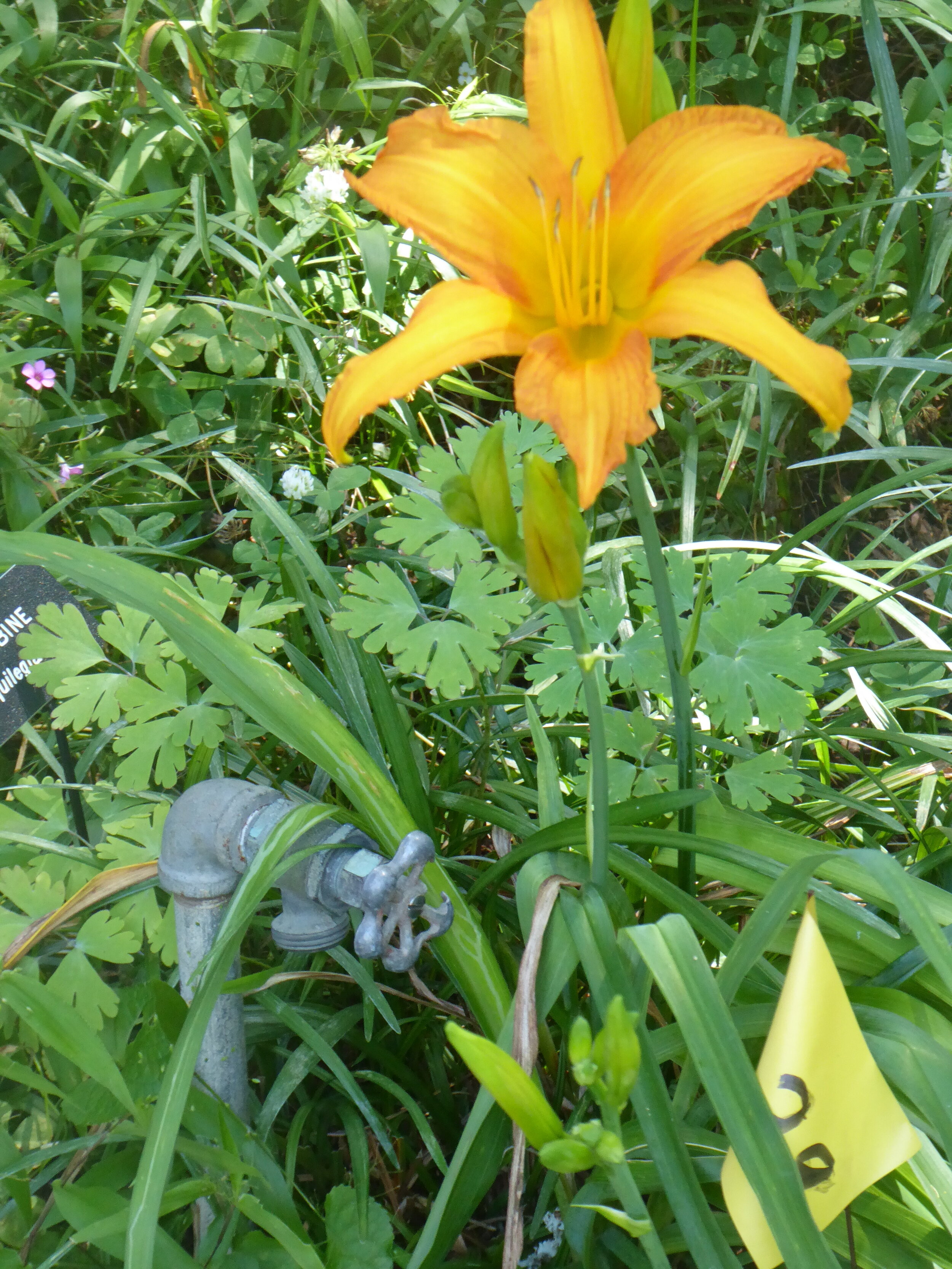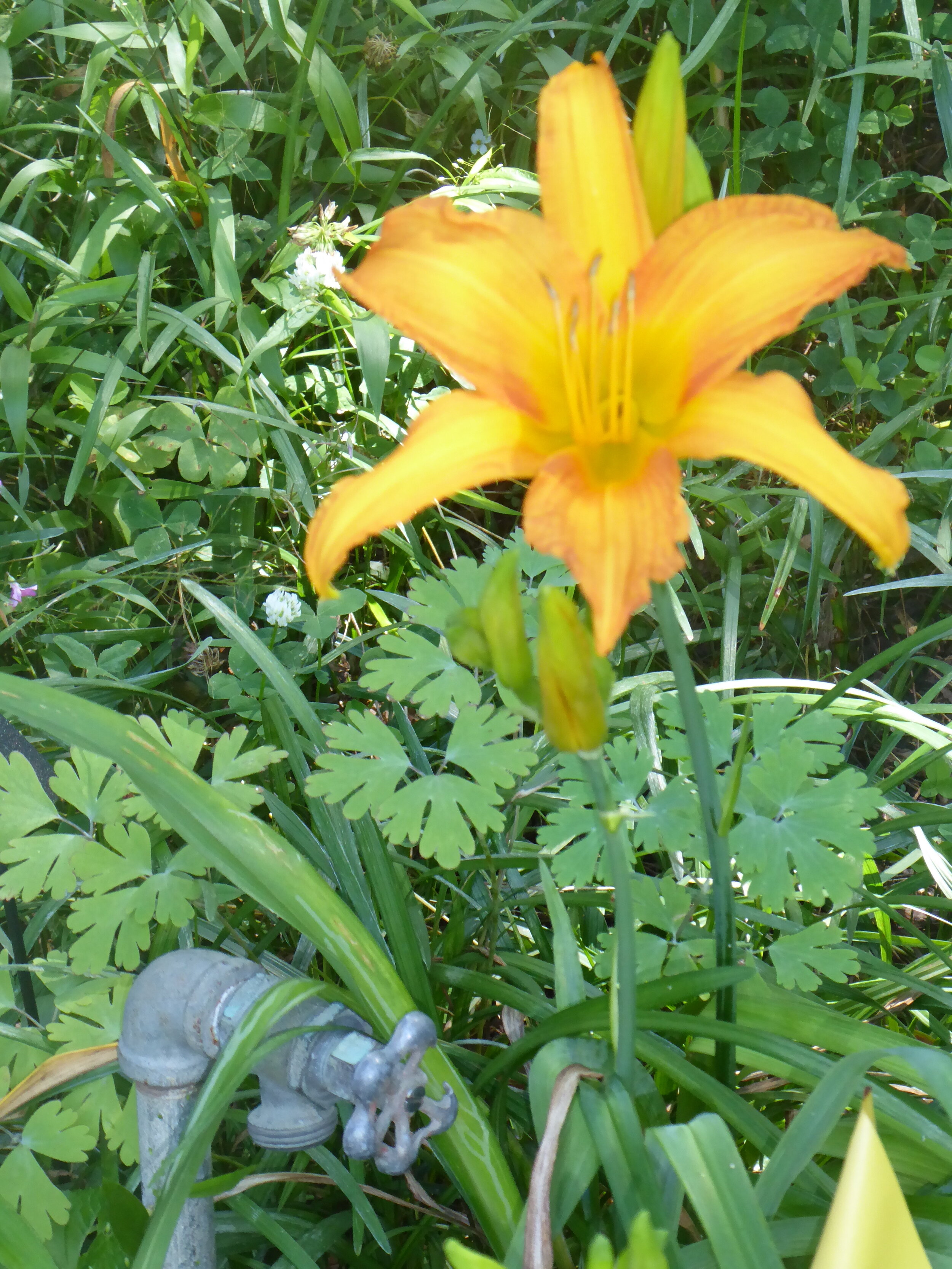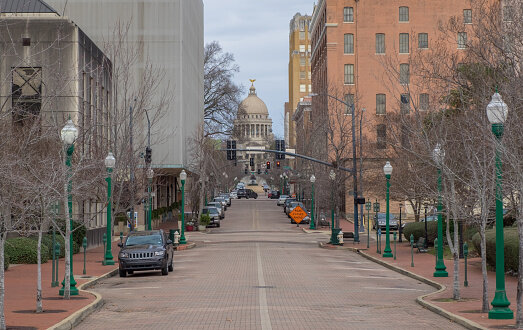
Jackson
Jackson is the state capital. Its downtown is all about the government and a few museums, none of which had more than a handful of visitors. The streets, concrete caverns with virtually no trees to offset the oppressive heat, were empty. There was one small condo/apartment building, but no shops or restaurants and not a food store in sight, even a “bodega”. The downtown lays claim to only one hotel - The Westin. In summary, the city was a ghost town. And it was ugly!
Like many American cities, this city is lived in the suburbs. Unlike Baton Rouge, however, there were no interesting shopping areas crying out for exploration. Nor were there any restaurants offering Mississippi specialities or even more broadly, Southern food. Tons of fast food restaurants, of course, and very little else. We did find a new so-called “food hall” that was rather interesting.
We visited Eudora Welty’s home (guess I need to start reading), drove by Medgar Evers home which was incredibly sad, of course, and we visited the Mississippi Civil Rights Museum which was part of the Mississippi History Museum. The Civil Rights Museum was sobering although there was little I did not already know about. It was made to be very realistic with simulations of police trucks to carry prisoners to jail as well as jail cells and ankle chains. The most chilling thing I saw was a series of towers with the names of individuals lynched in the state. One tower for every 4 year period. It was powerful - but not for the faint of heart. Very depressing.
Susan:
Like many southern cities, Jackson’s best days are behind it. Downtown, there are a lot of hidden gems of Art Deco and turn of the century architecture, many sitting abandoned or nearly empty now. Jackson’s last great heyday occurred during and right after WWII. Look at the black and white photo of downtown Jackson - the third picture of the first row. See how busy and bustling it is? Those streets and businesses were the center of the civil rights movement. The African American Community fought a long protracted legal and nonviolent movement to desegregate those busy streets. Today those same streets are a ghost town. Most businesses are boarded up. Only bewildered tourists roam the streets. Few restaurants or bars are open. It’s sad. But even at its busiest it was not a pretty city. I found it to be the most treeless, shadeless and uninspired city we have visited. For a place that is brutally hot you would think people would be planting trees by the dozens or putting up awnings or something. Not here, you just walk those hot streets completely exposed to the sun. Even the area off to the side of the city where they built a cluster of museums is treeless and harsh. (See the two pictures before the Eudora Welty Sign.) Everyone moved to the suburbs and the downtown city of Jackson exists as archeologist bones; providing a suggestion of a former greatness. Despite this I am recommending people go to Jackson to see three things. The first is the Mississippi Civil Rights Museum. Expertly done, the curators employ sight, sound and physical sensation to encase you in the harshness of that world. You will leave needing a drink, but also with a much huge appreciation for those people who would not stand for being treated like animals and risked their lives to make some changes. The second thing I recommend is to take the Mississippi Civil Rights Driving Tour. Not very many people do it. We drove up to Medgar Evars House and it was clear from the neighbors’ reaction that few people come to visit. It is, in fact, way out of town in a sketchy neighborhood and you can only drive by. We could see that at one point this was probably a middle class neighborhood. The whole drive is informative and interesting if a little here and there and everywhere. To lift your spirits I suggest saving my third recommendation for last. Go see Eudora Welty’s house and garden. It’s adorable and chock full of Eudora Welty stuff and information. The last pictures are of the flowers in her garden. I have to admit that the colors of her lilies are quite special. They try to keep her garden very close to what she and her mother laid out. She loved to travel all over the world, but when she was home, she loved to garden and write. That’s it for Jackson. That slick little tourist book we picked up in Natchez may have presented Jackson as hoppin and happening, but really this is it.
